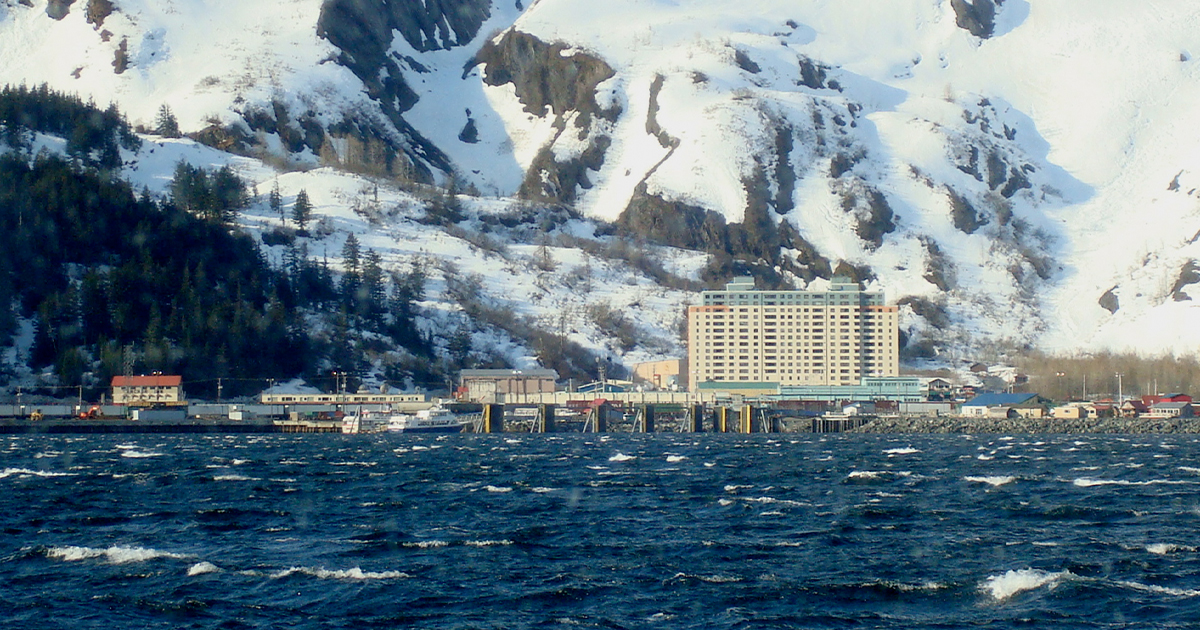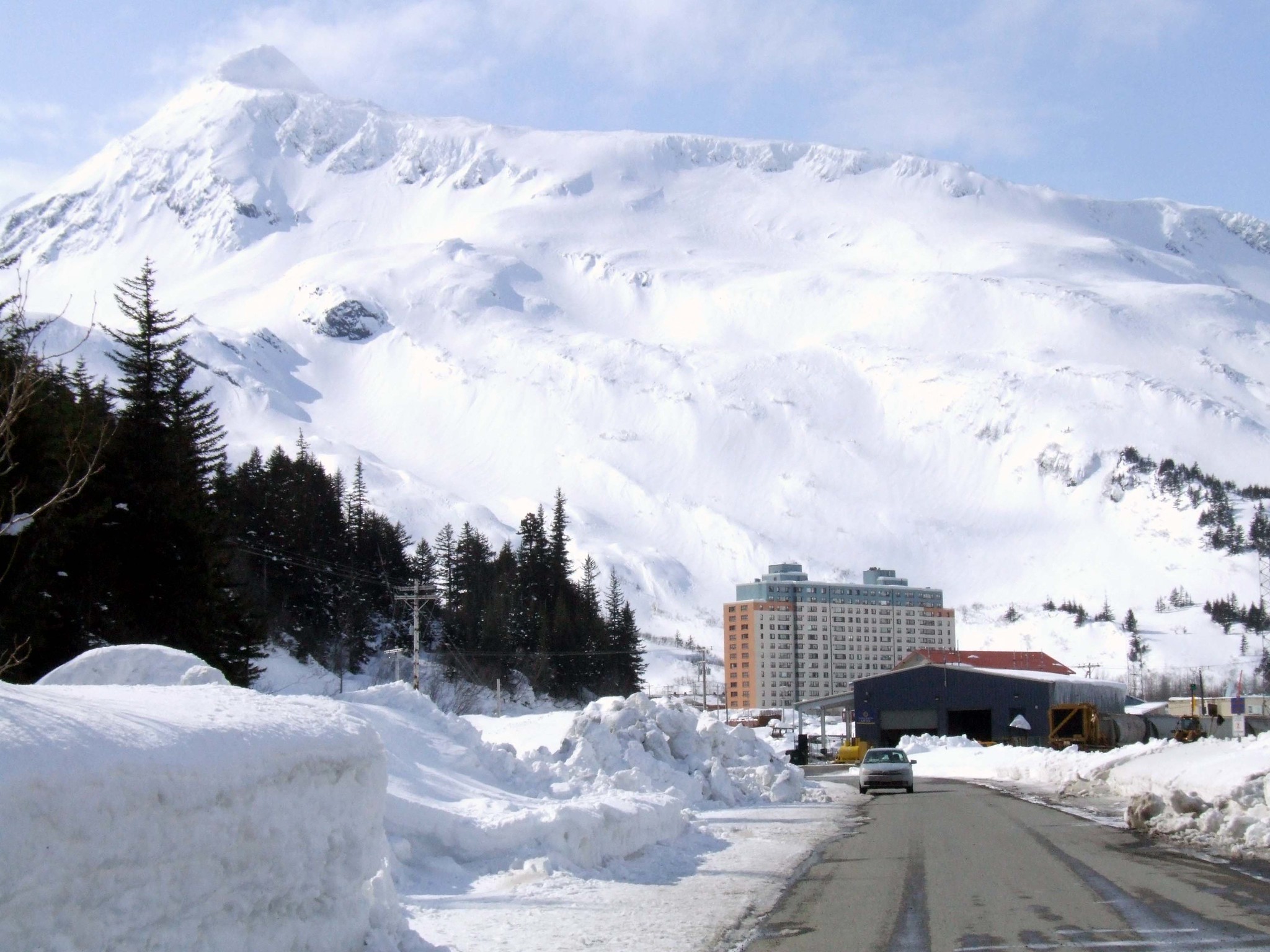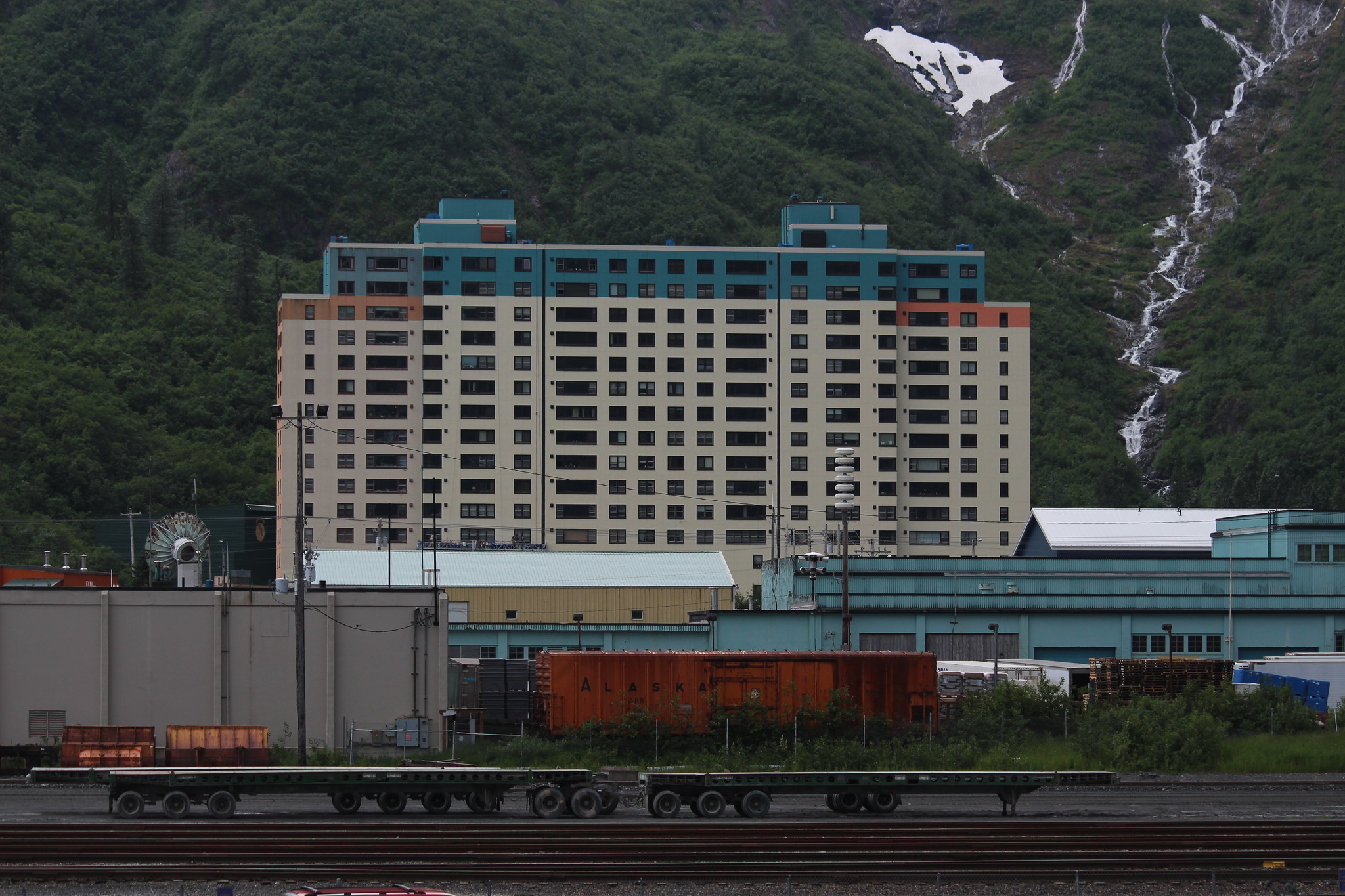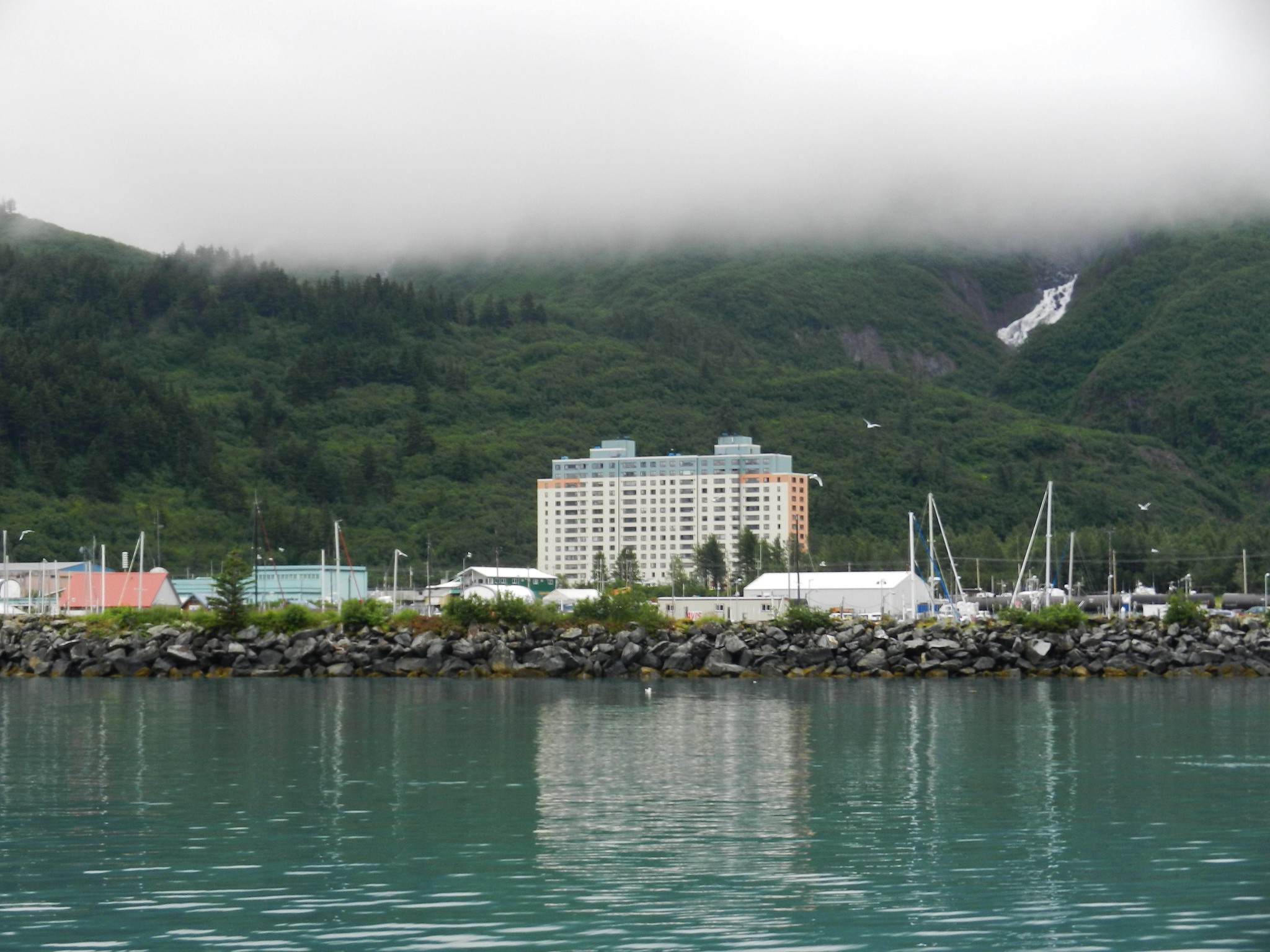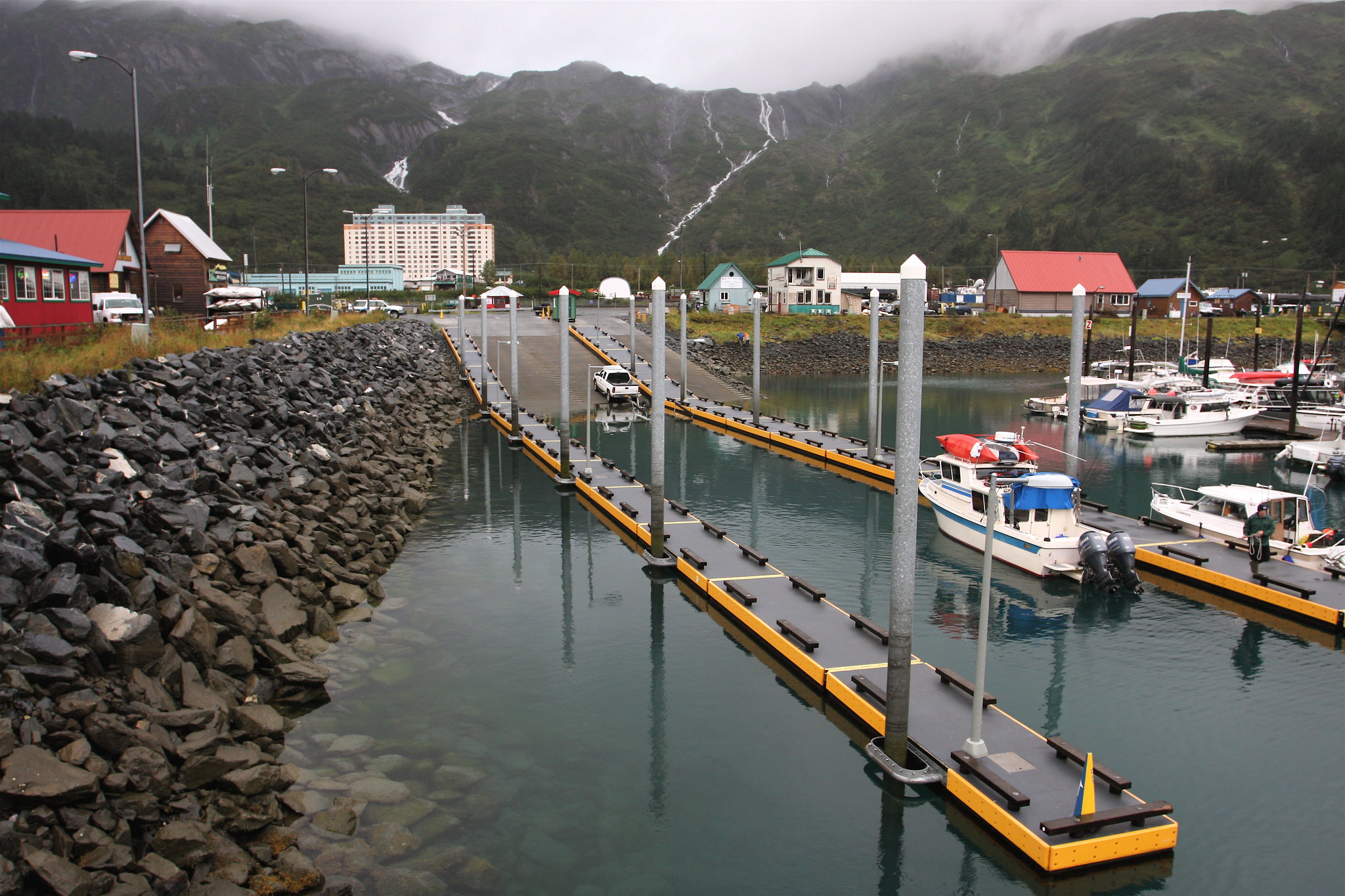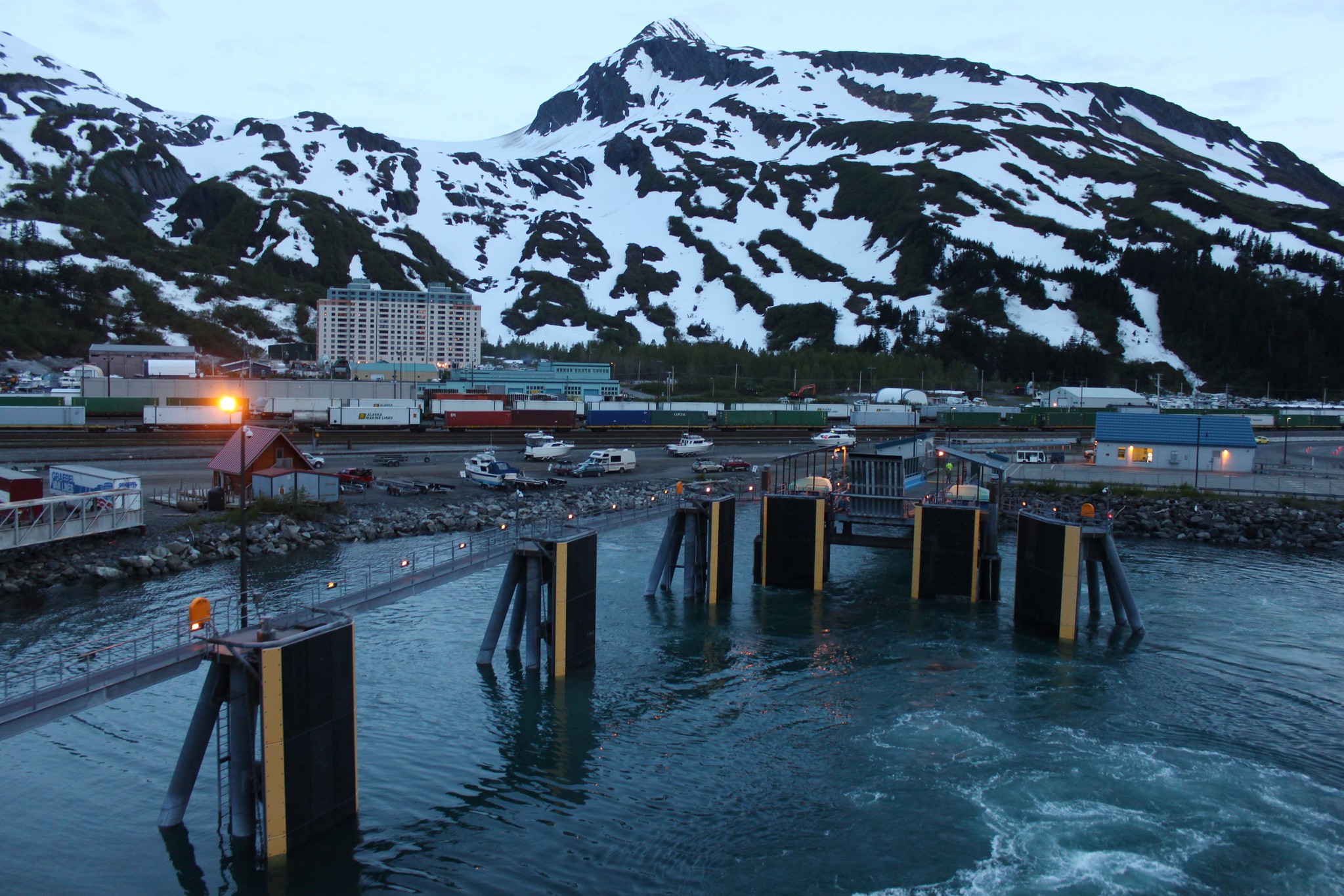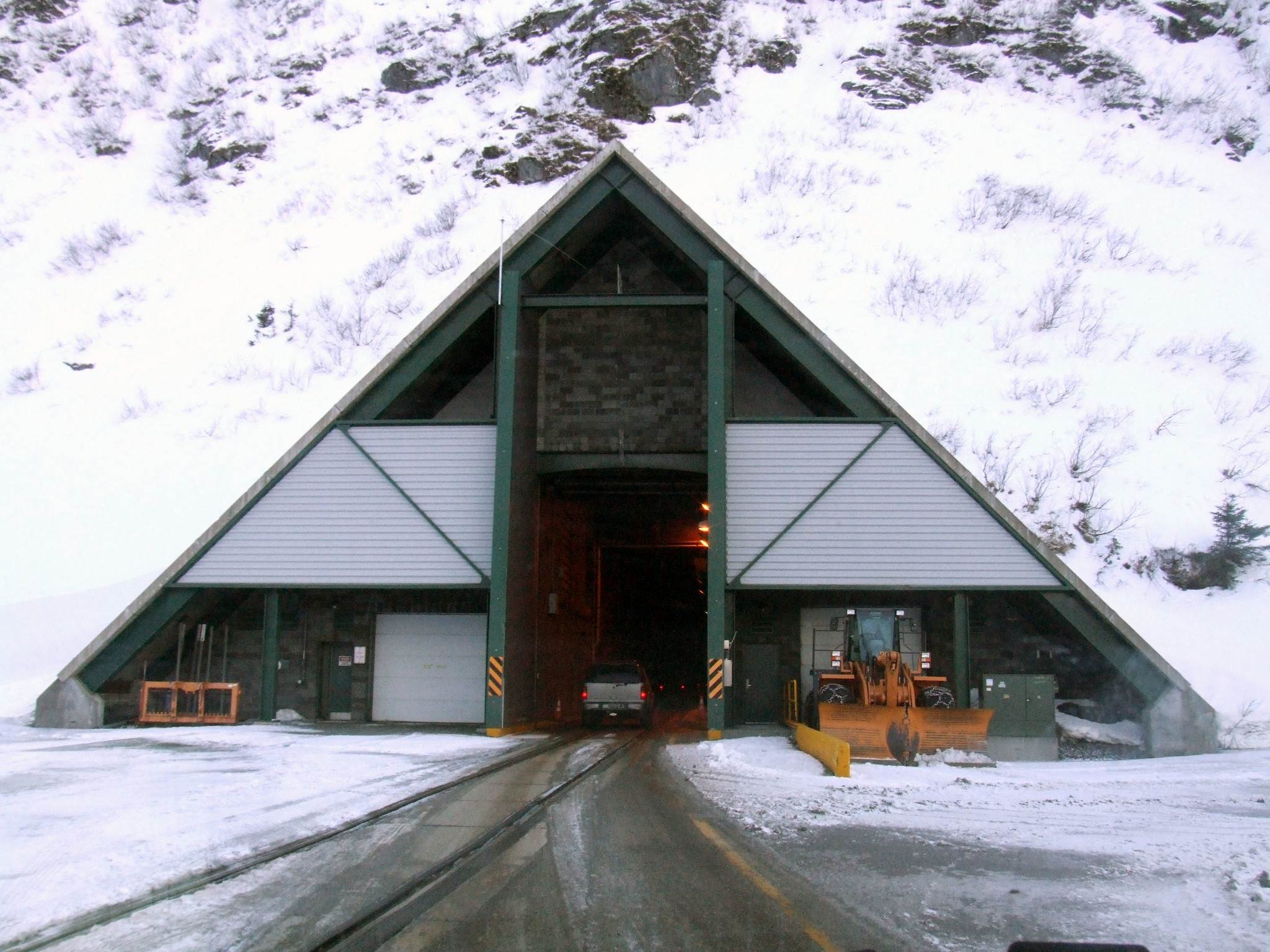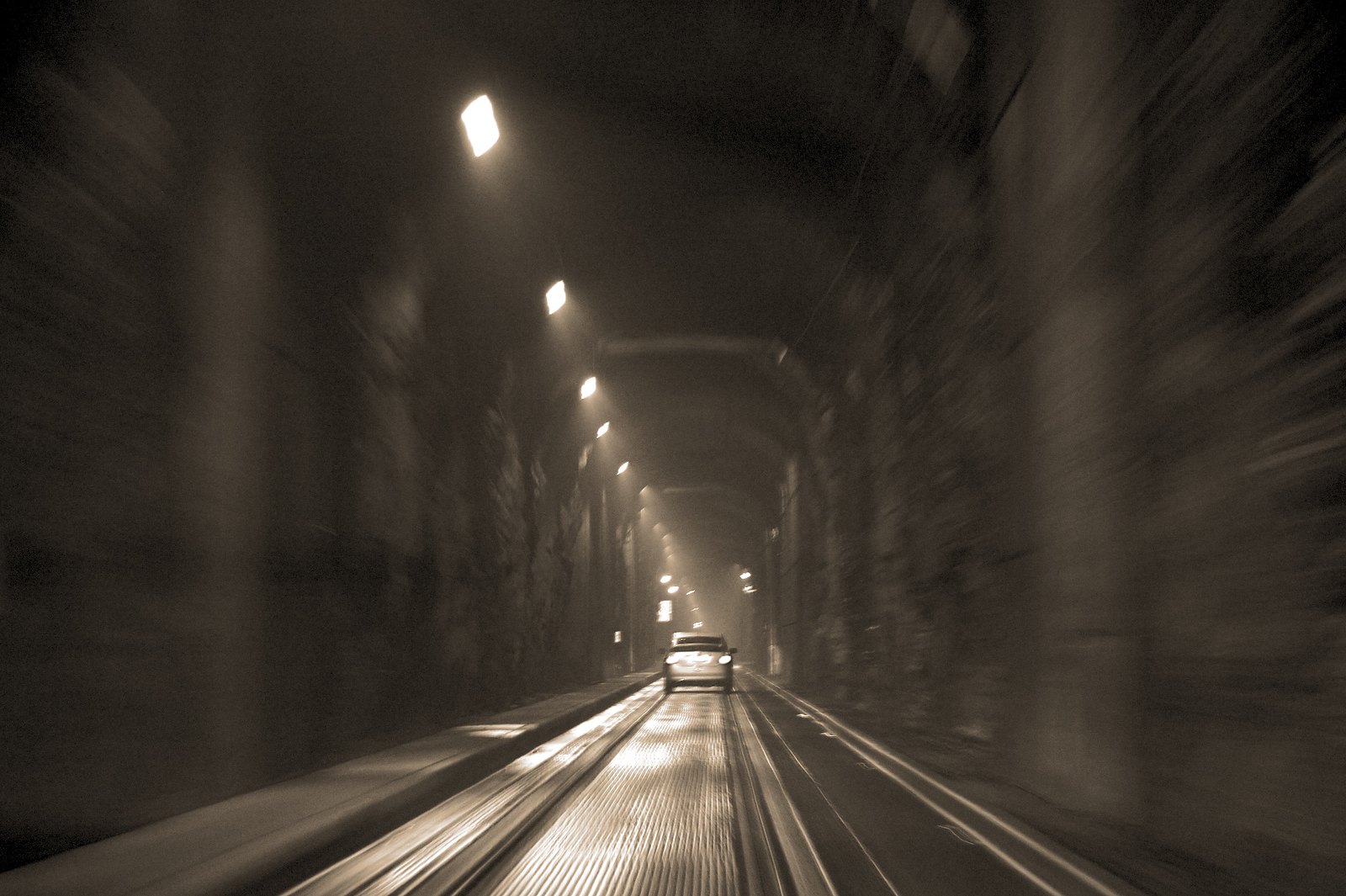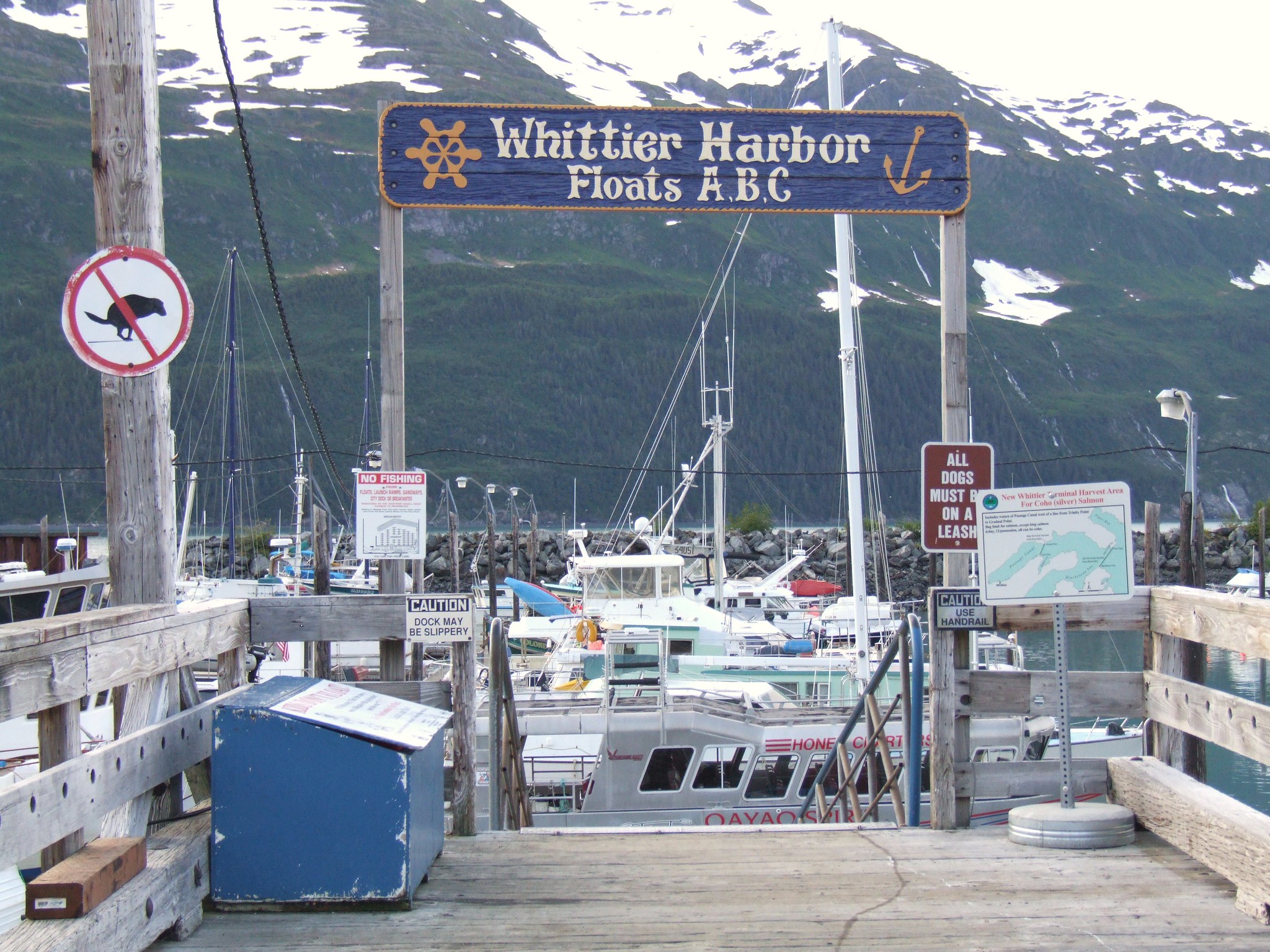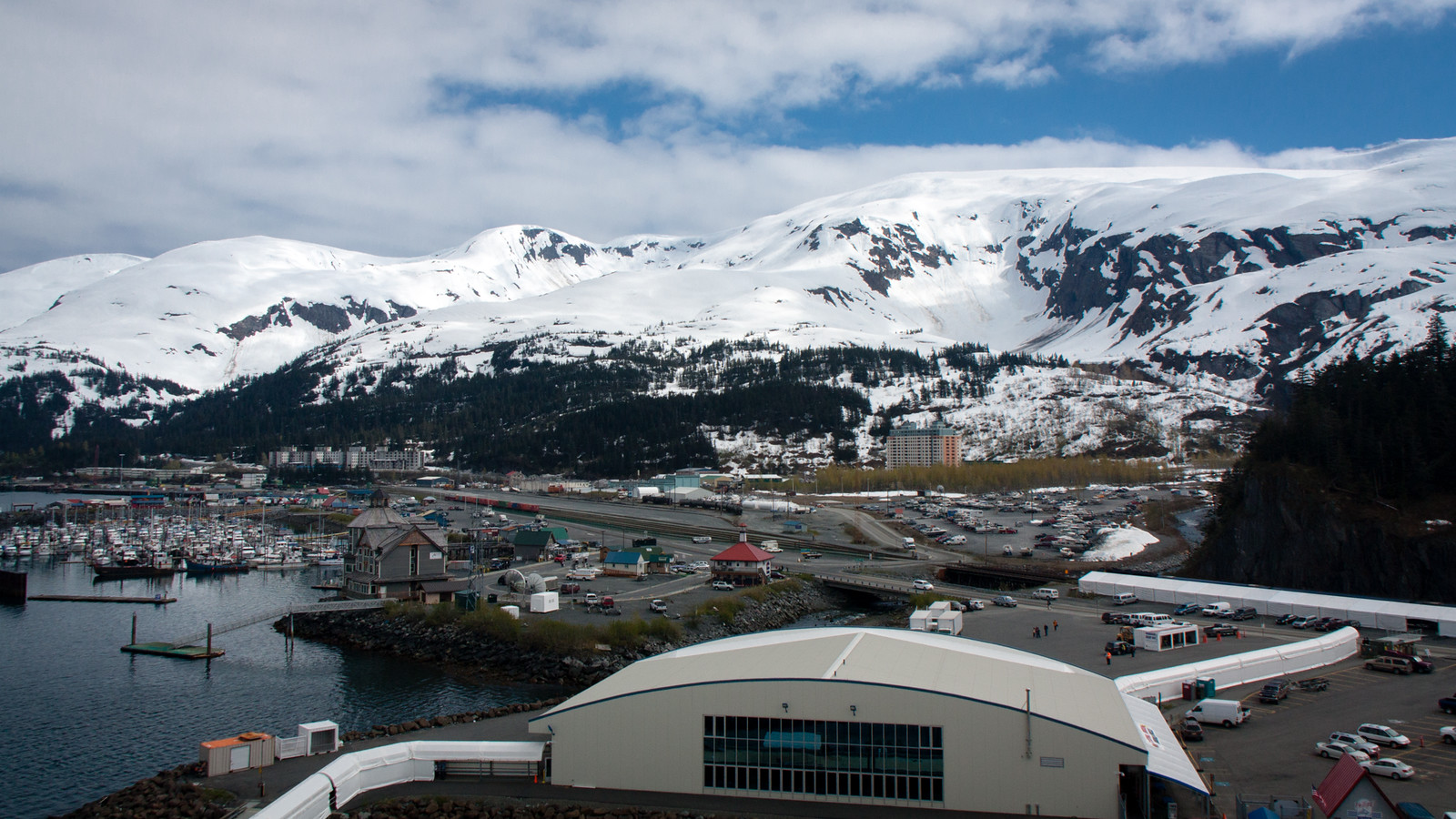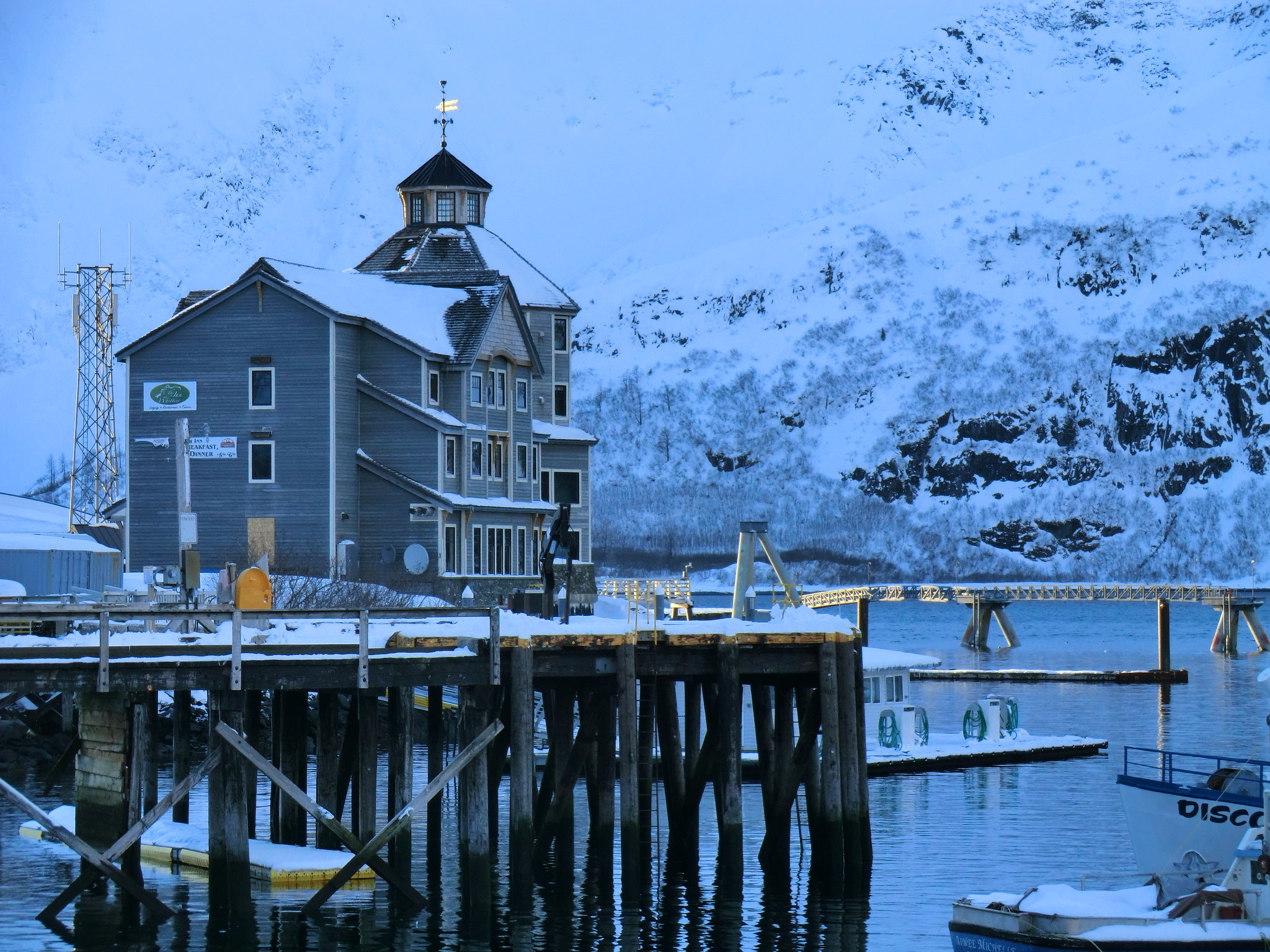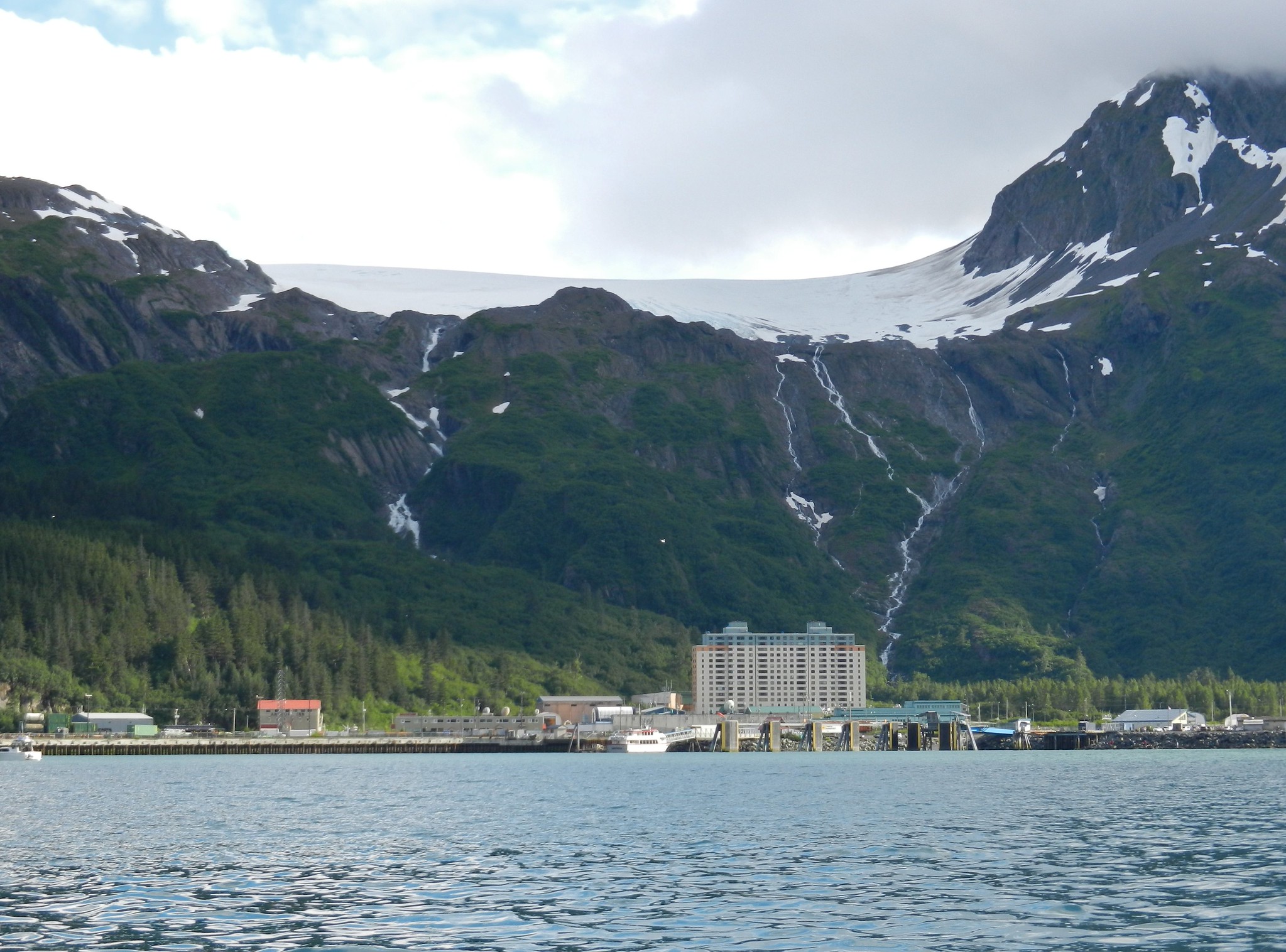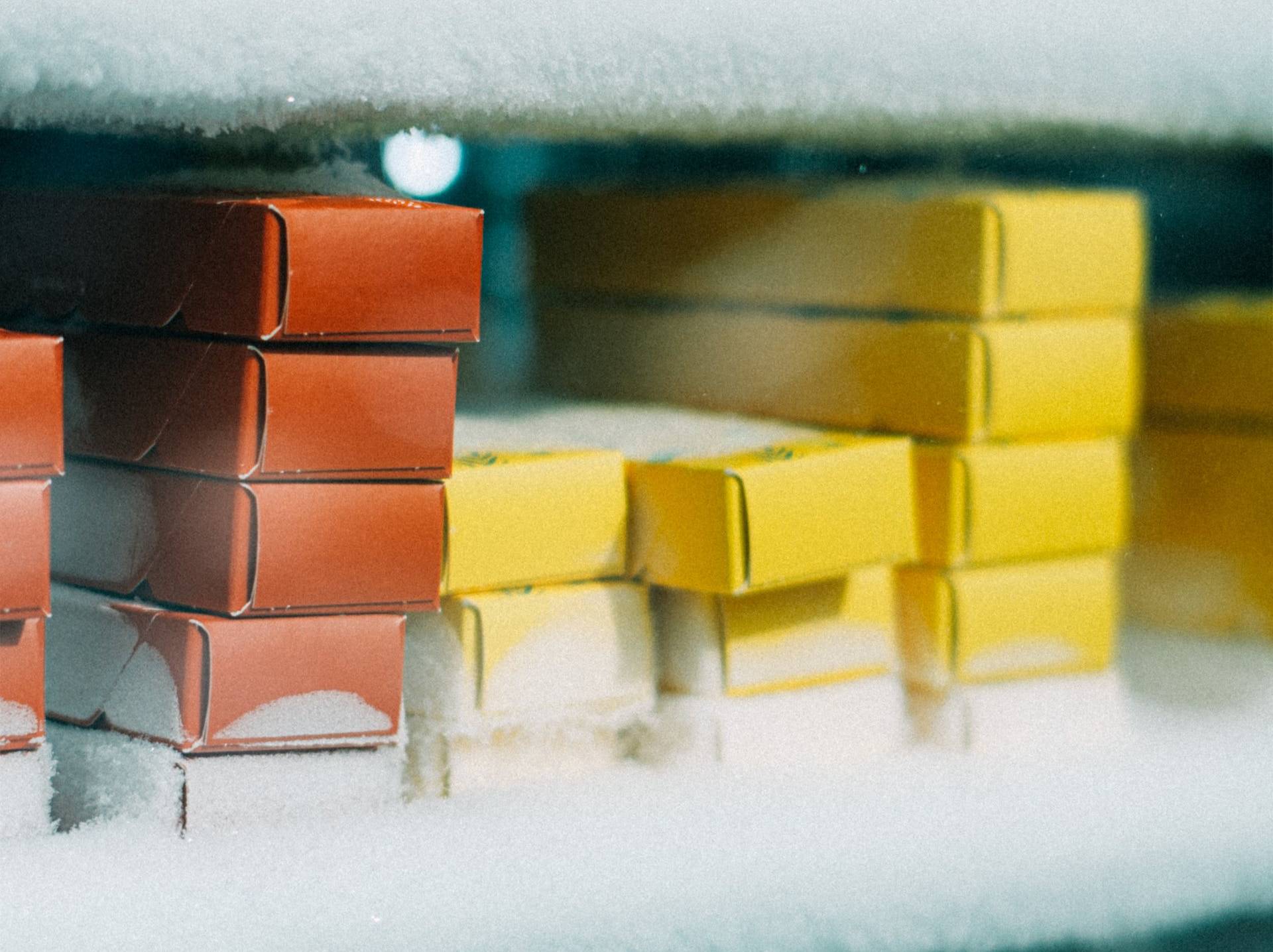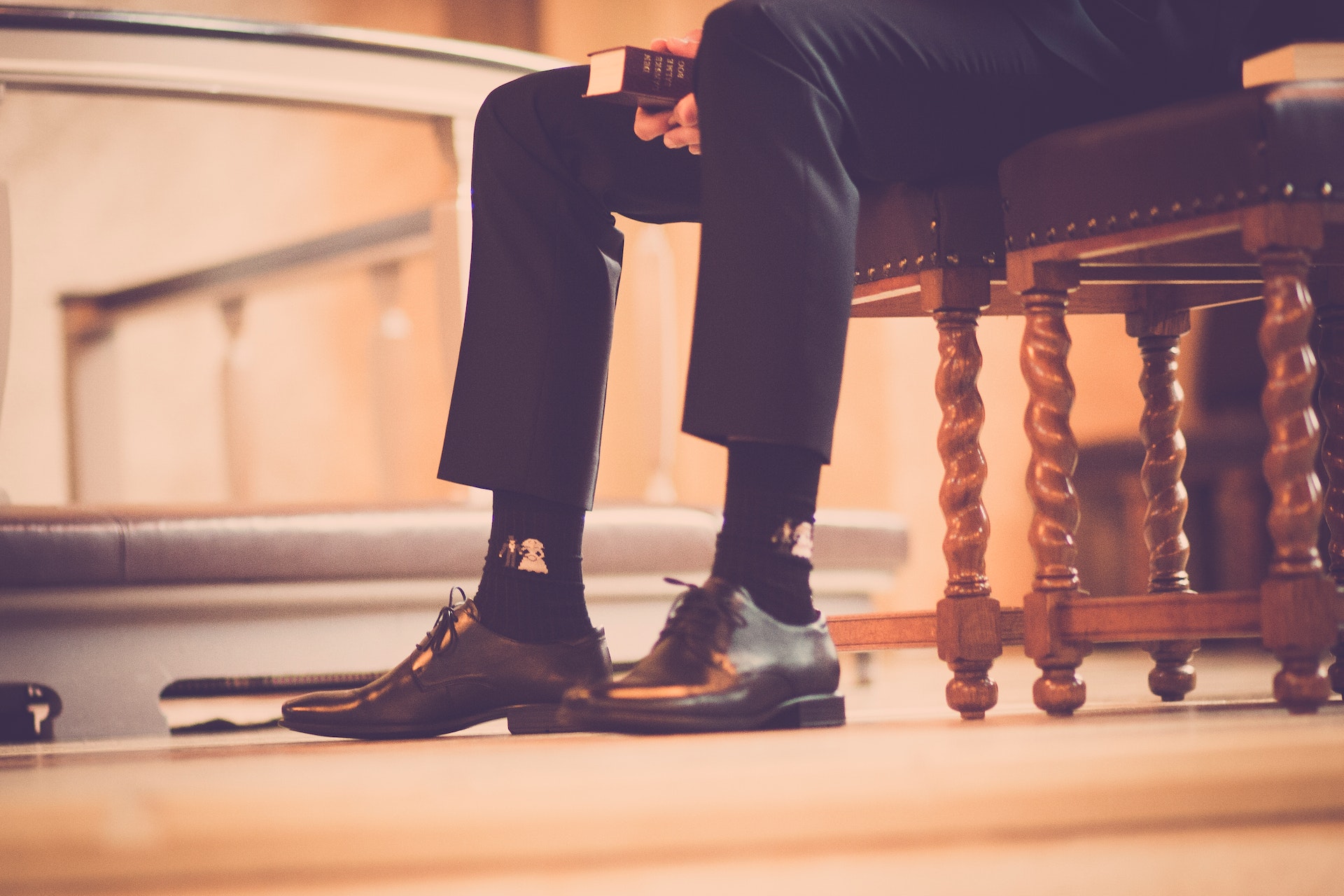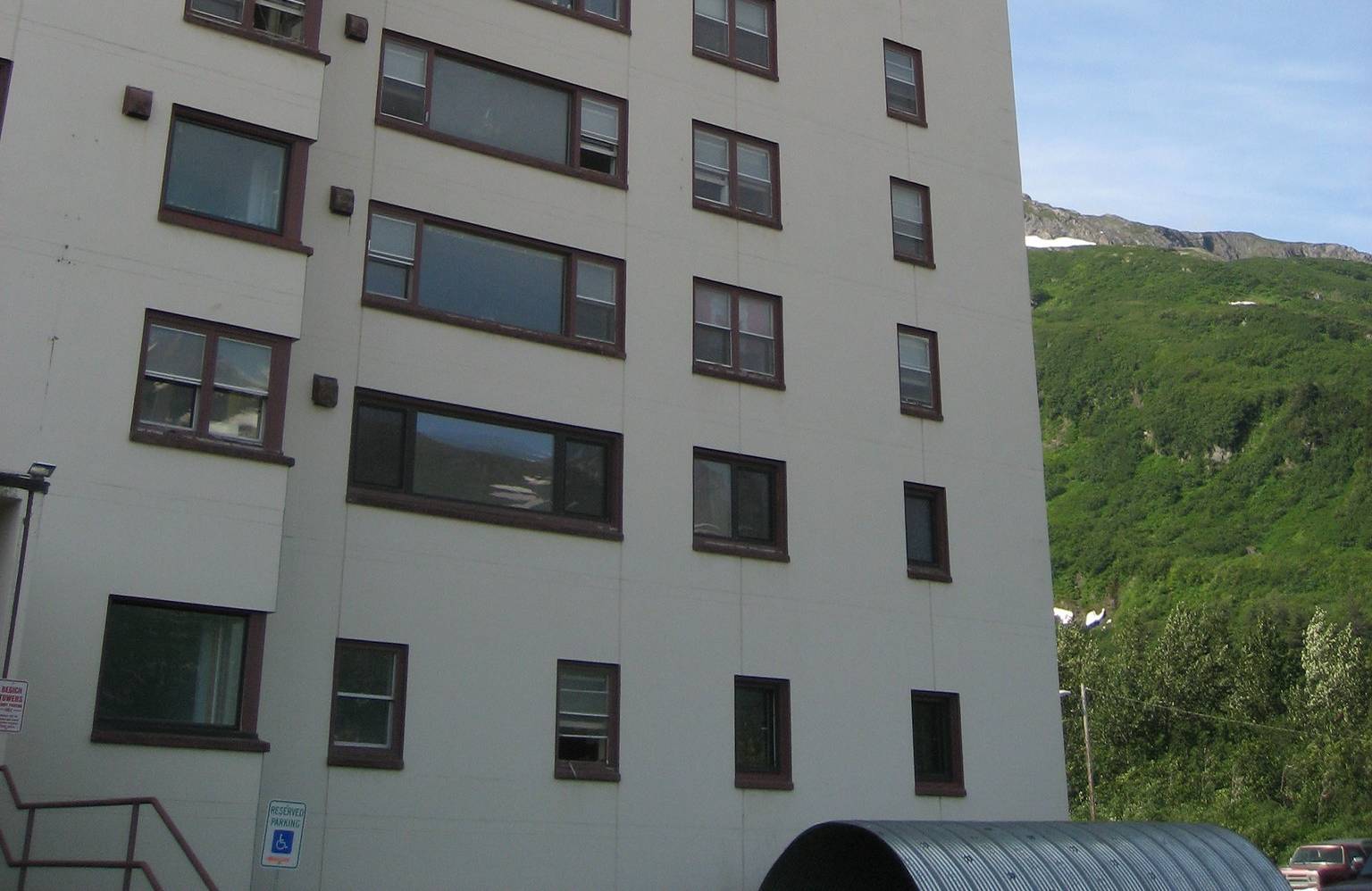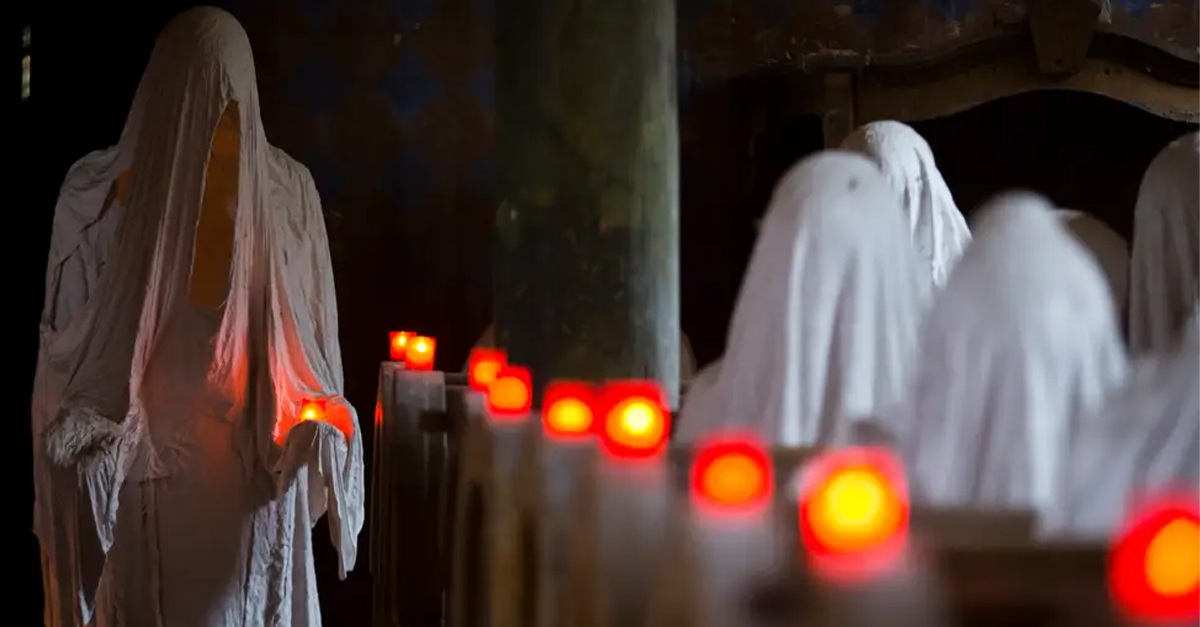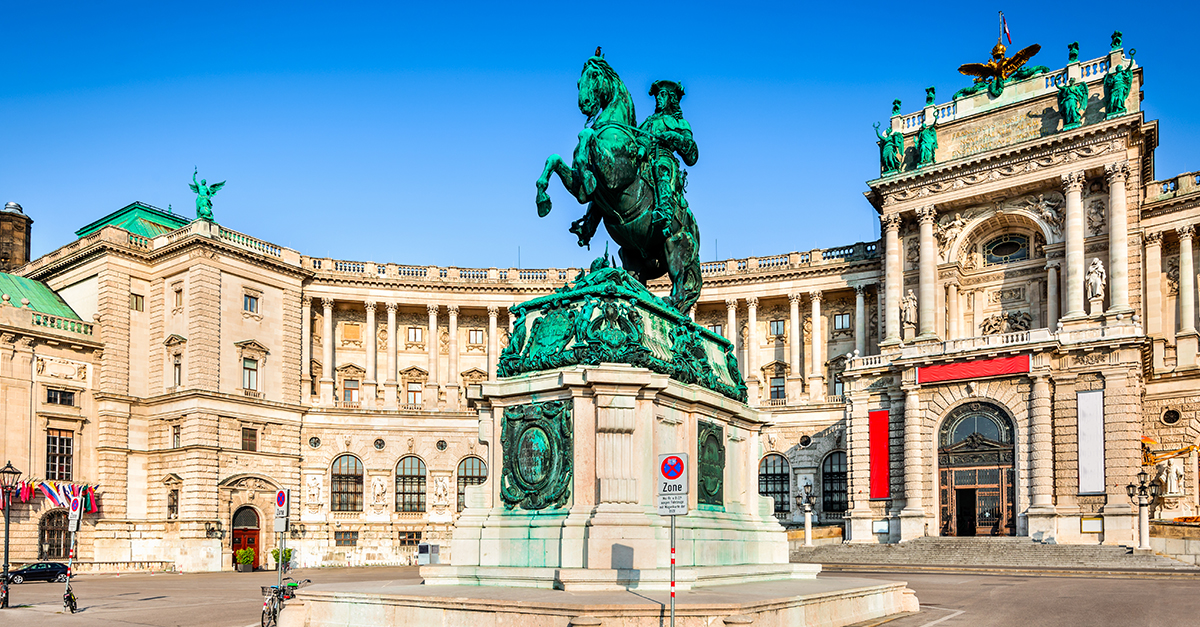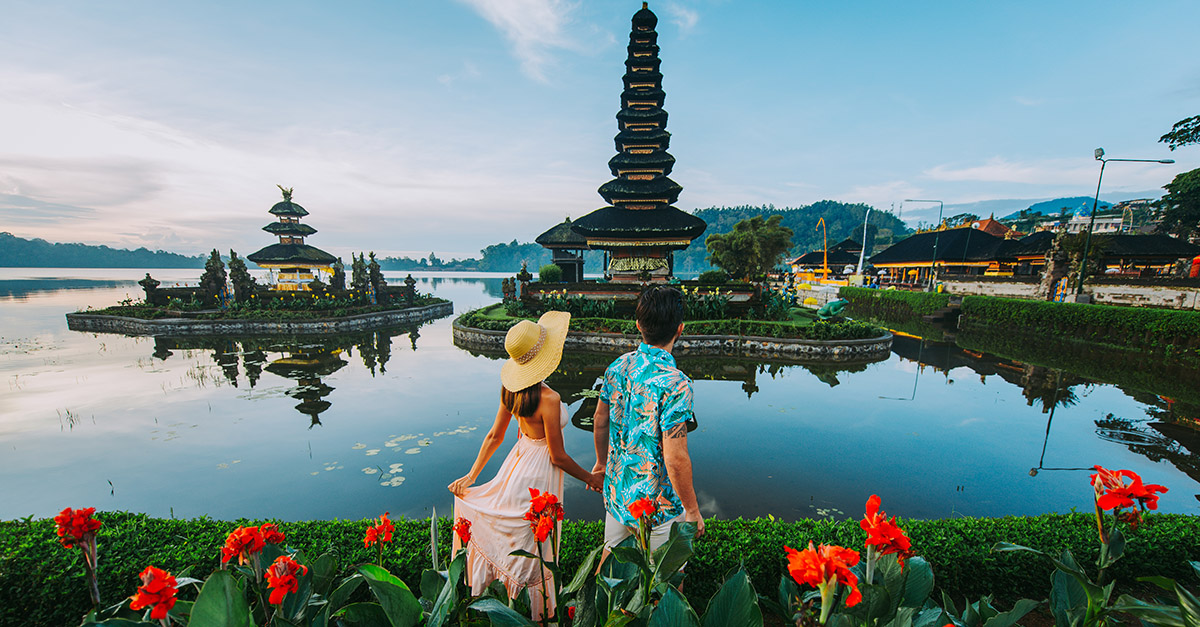Whittier, Alaska: The One House Town
Alaska is known for remote communities, considering its general location on the globe. But there is one specific community where their entire population live under one roof.
Not even that, the building is so well-equipped that some residents almost never step foot outside.
Location
Whittier is a city in the state of Alaska, about 58 miles southeast of Anchorage.
The city is one of two entities established in 2019 when the former Valdes-Cordova Census Area was closed. It is also a port for the Alaska Marine Highway.
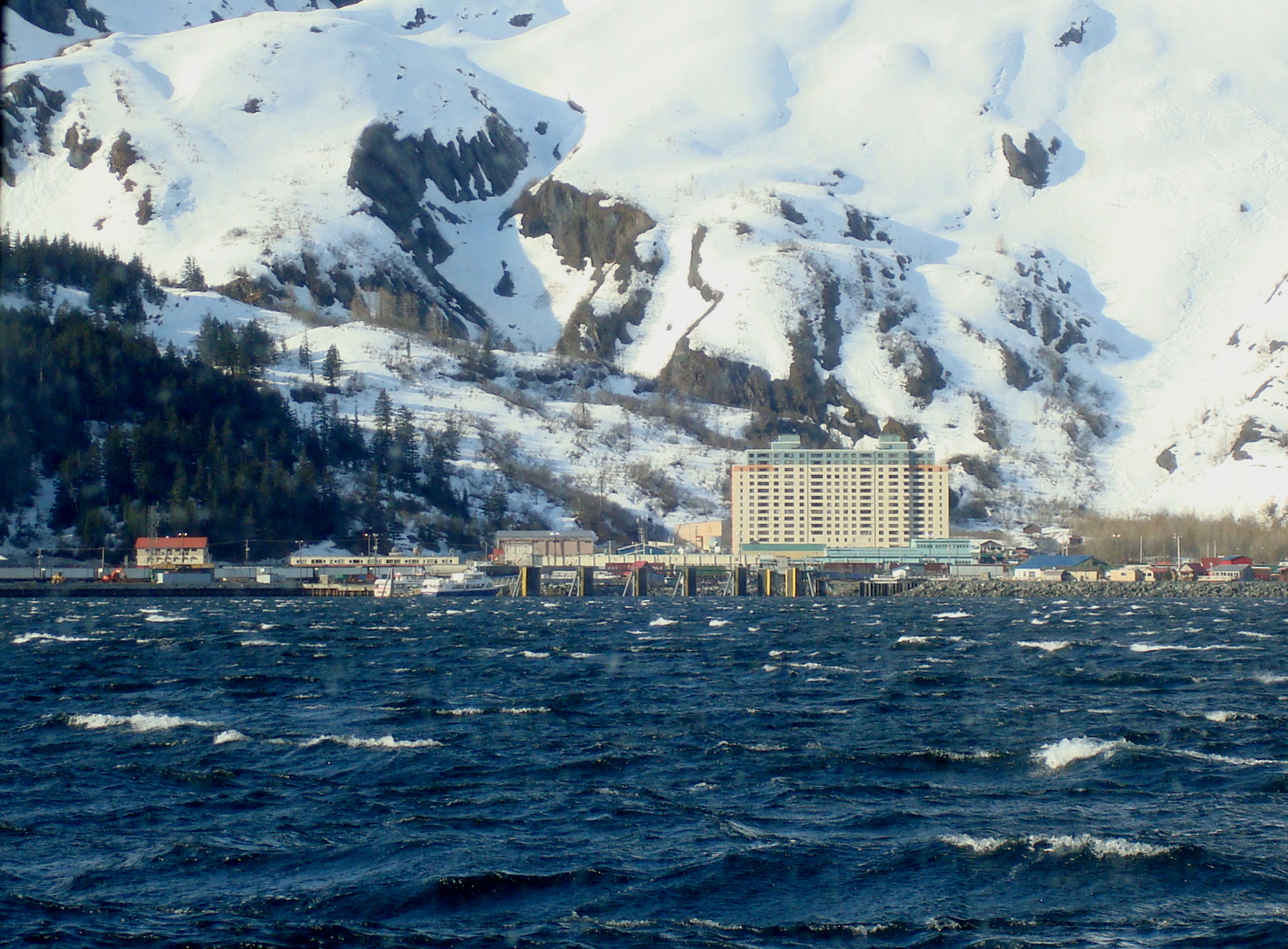 Barbara Ann Spengler, USA, CC BY 2.0, Wikimedia Commons
Barbara Ann Spengler, USA, CC BY 2.0, Wikimedia Commons
Population
As of 2022, there were 214 people living in the entire town of Whittier, Alaska. It doesn’t sound like much, but when you find out where they all reside, you might have a different perspective.
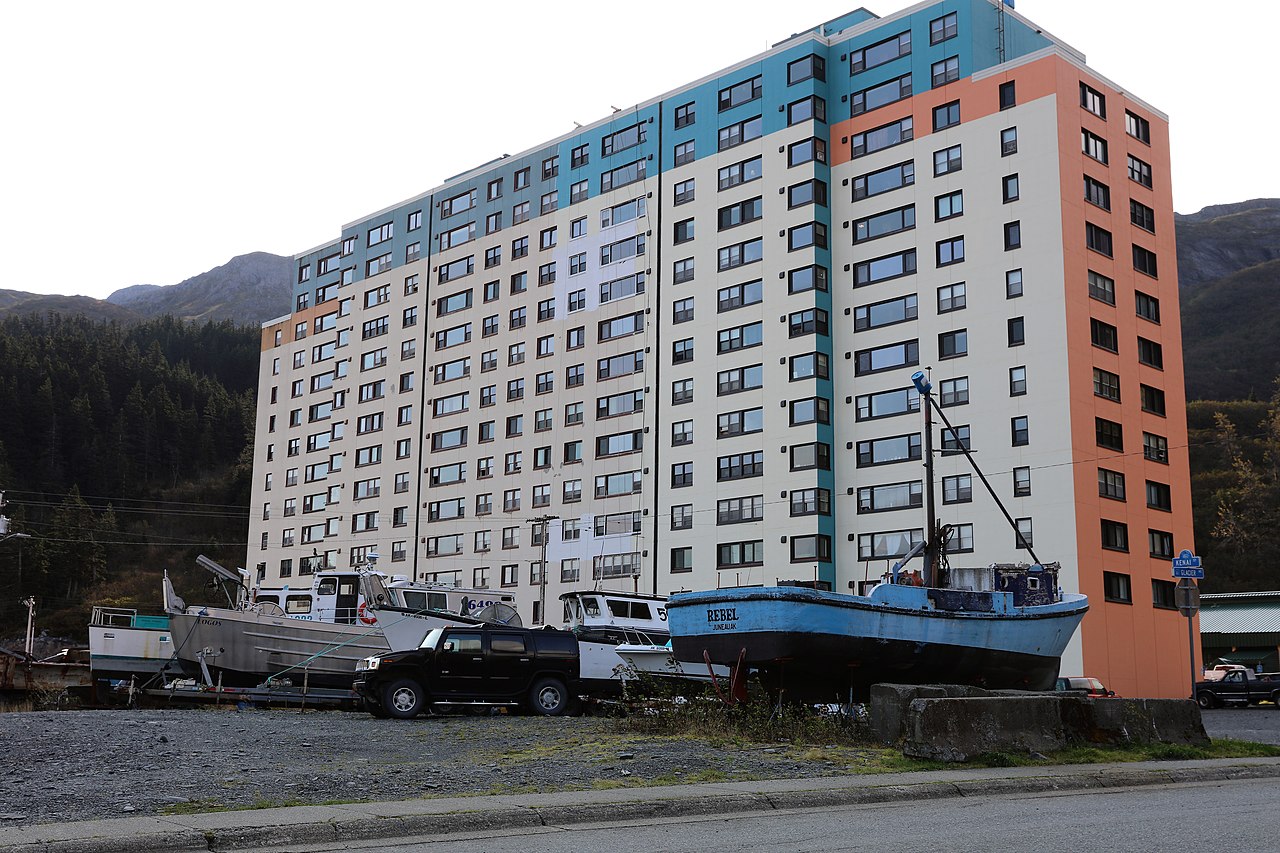 Enrico Blasutto, CC BY-SA 4.0, Wikimedia Commons
Enrico Blasutto, CC BY-SA 4.0, Wikimedia Commons
History
Way back in the 1940s and 1950s, two buildings were constructed as a secret military base to house thousands of military personnel and their families.
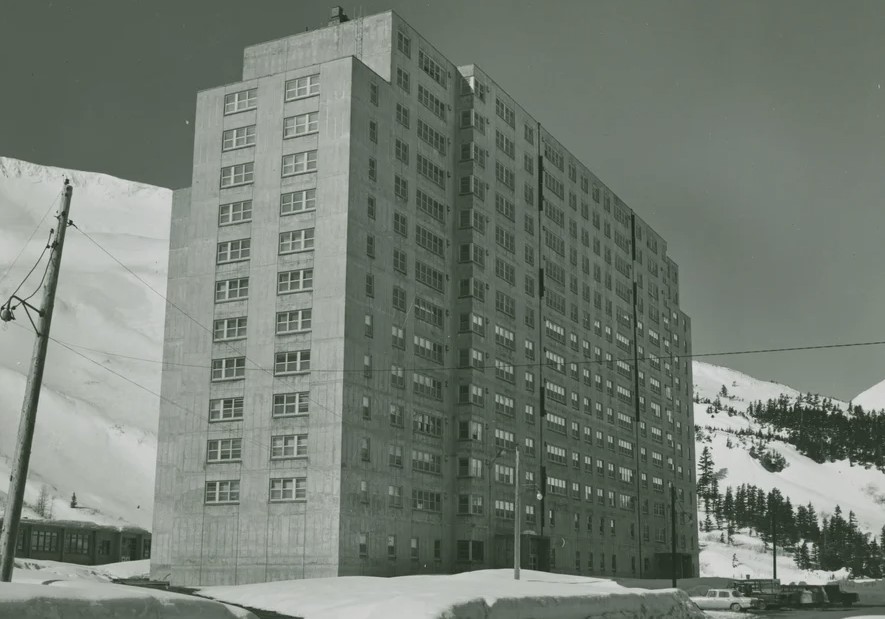 The U.S. National Archives, NARA & DVIDS Public Domain Archive
The U.S. National Archives, NARA & DVIDS Public Domain Archive
A Town Under One Roof
The large buildings were designed in a way to create a “town under one roof”, where residents did not have to leave the building at all to access basic needs, including food and medical care.
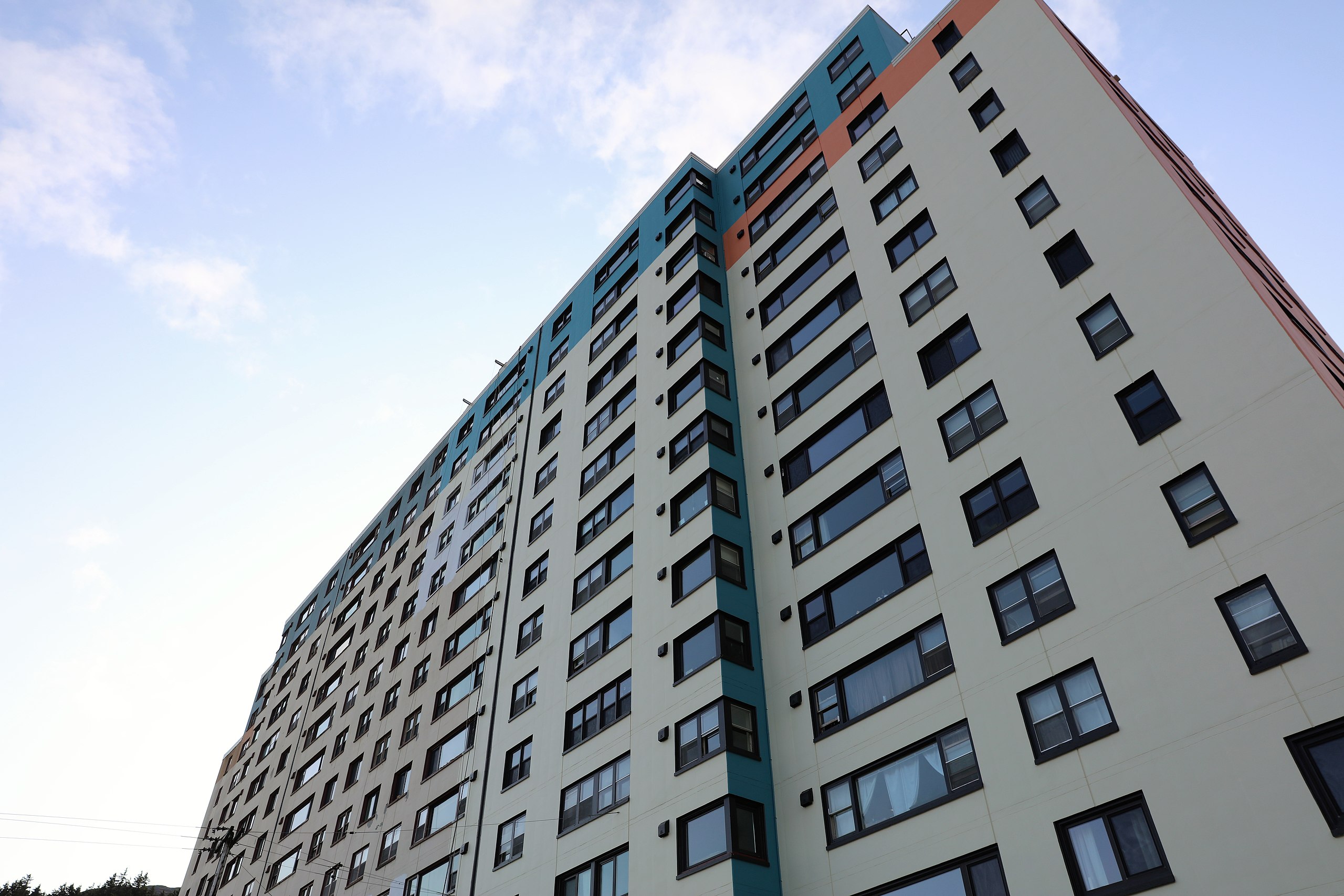 Enrico Blasutto, CC BY-SA 4.0, Wikimedia Commons
Enrico Blasutto, CC BY-SA 4.0, Wikimedia Commons
Housing: Begich Towers
The 14-story Hodge Building (renamed Begich Towers) contains 197 two-and-three-bedroom apartments plus bachelor efficiency units—this is where the majority of the population currently live.
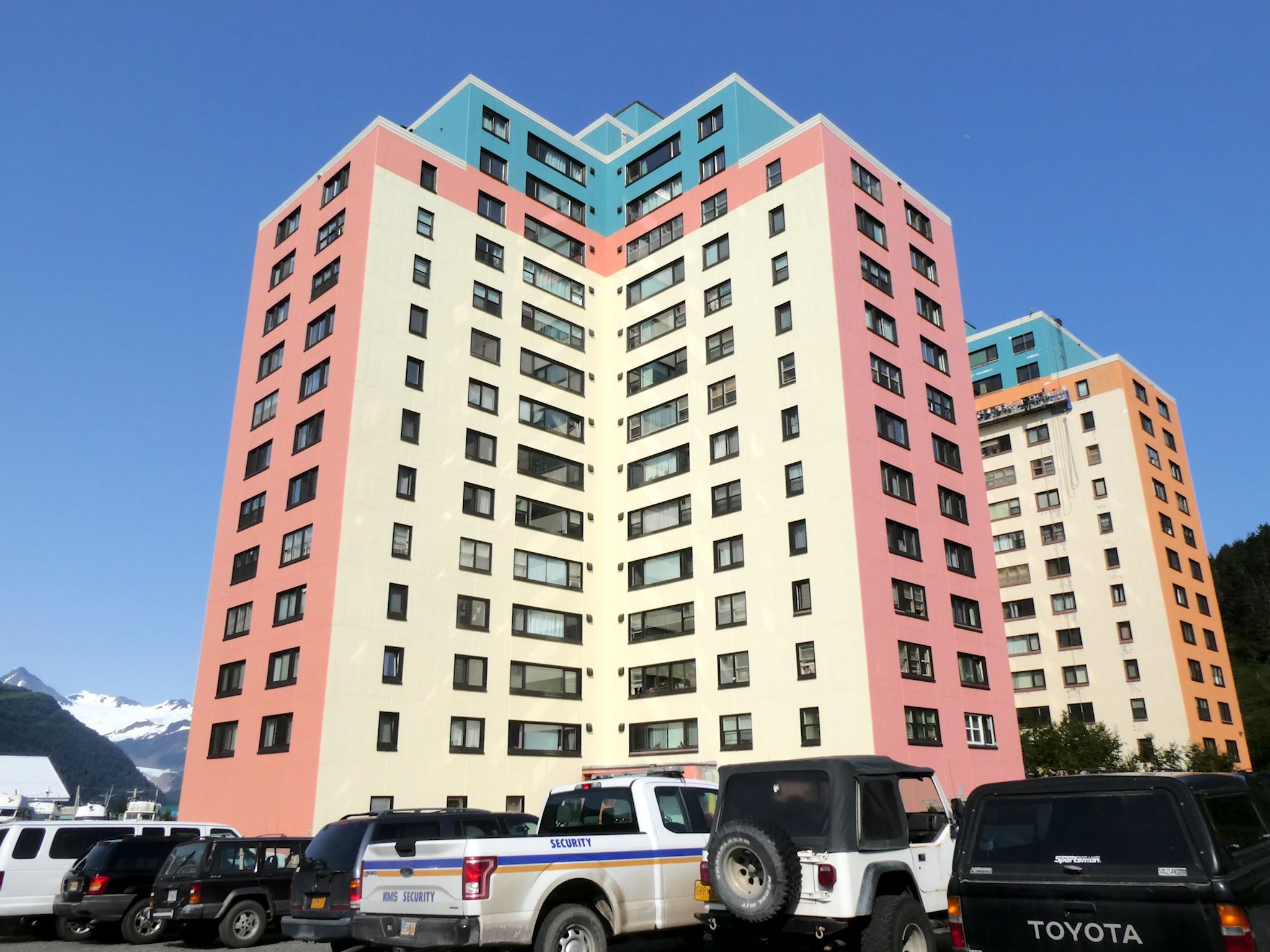 sf-dvs, CC BY 2.0, Wikimedia Commons
sf-dvs, CC BY 2.0, Wikimedia Commons
Housing: Begich Towers
The Begich Towers has three interconnected modules, each with 14 floors. The towers are made up of the 197 apartments, as well as shops, offices, and a small medical clinic.
That’s not all, though.
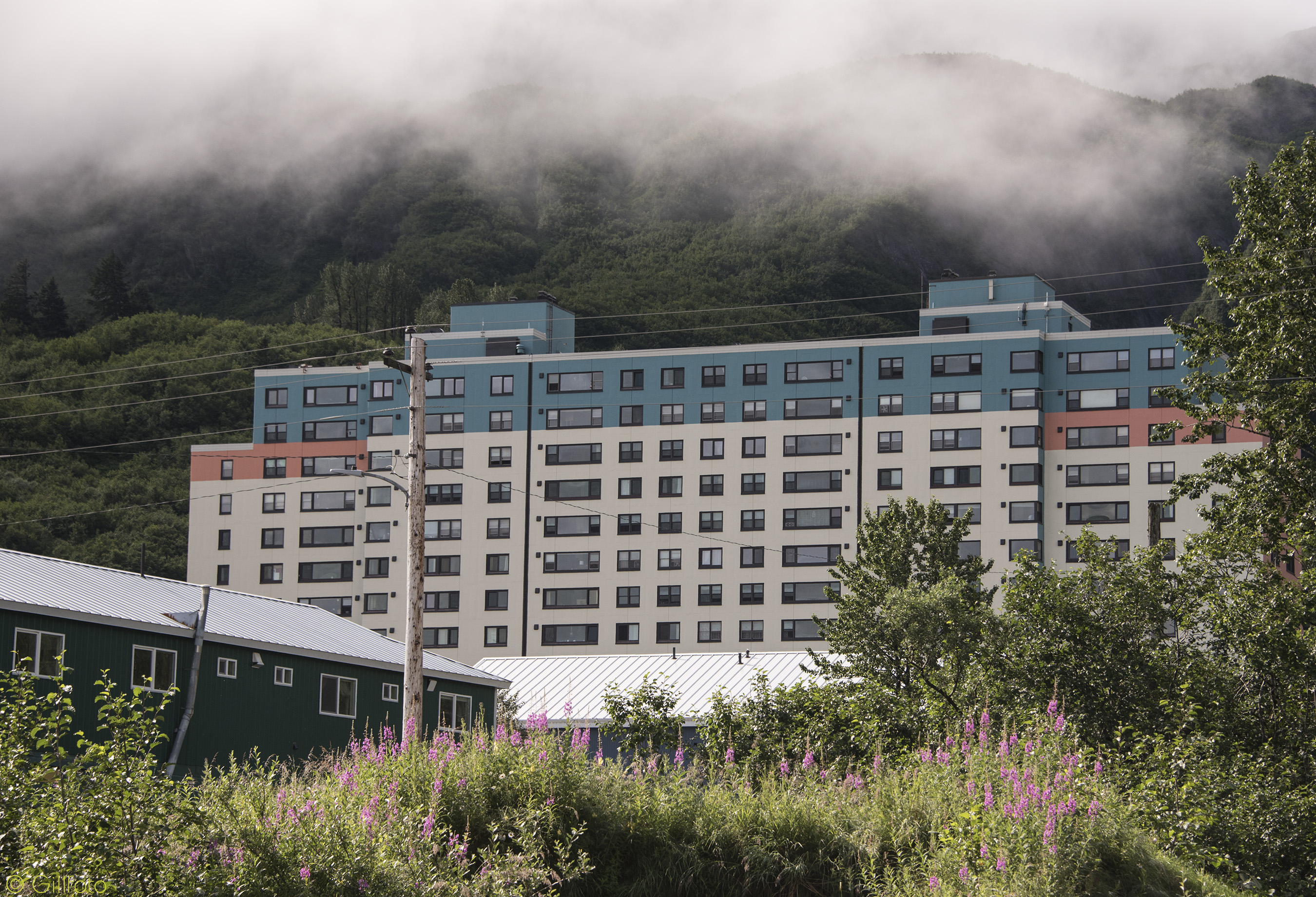 Gillfoto, CC BY-SA 4.0, Wikimedia Commons
Gillfoto, CC BY-SA 4.0, Wikimedia Commons
Housing: Begich Towers
As with most towns, the “town under one roof” also provides residents with a post office, a grocery store, a security department, a laundromat, a church, a theater, a school, a medical facility, a post office, shops, and the mayor’s office.
Begich Towers: Tunnels
There is a network of corridors and elevators that connect all the towers of the building. Residents do not have to go outside to access much at all.
This is also true for the school.
School
The Whittier School is connected by a tunnel at the base of the tower so students can safely get to school on days with bad weather.
There is one school that serves about 48 students living in the buildings, ranging from preschool to high school.
 Paxson Woelber, CC BY 2.0, Wikimedia Commons
Paxson Woelber, CC BY 2.0, Wikimedia Commons
Housing: Whittier Manor
The other building was abandoned after the war, and a private residence called Whittier Manor was built. This is where the rest of the population resides—a select few.
Residents of the buildings continued to live there, even after the war had ended, and others have since joined.
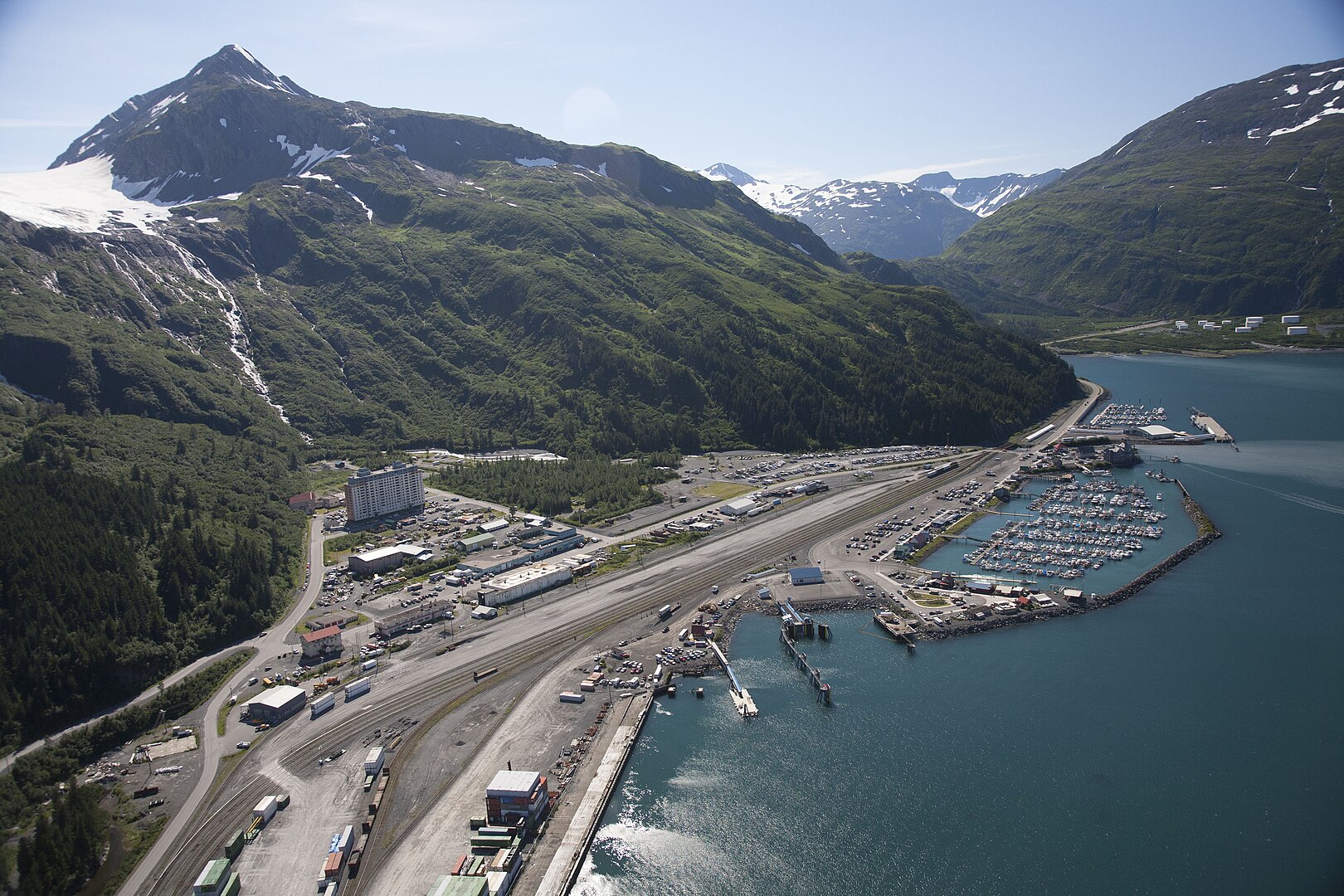 Forest Service Alaska Region, CC BY 2.0, Wikimedia Commons
Forest Service Alaska Region, CC BY 2.0, Wikimedia Commons
Weather
The weather in Whittier, Alaska is notorious for heavy rainfall. The town receives 197 in (5,000 mm) of precipitation per year on average. In the winter, they are inundated with snow.
This is part of the reason why residents continue to live under the same roof.
Weather: Justifying Confinement
In an interview with the residents, many of them argued that the extreme weather conditions of Whittier (winds of up to 96 km/h, 6 meters of snow and average temperatures of -21 ºC in winter) justify the strange and sought-after confinement.
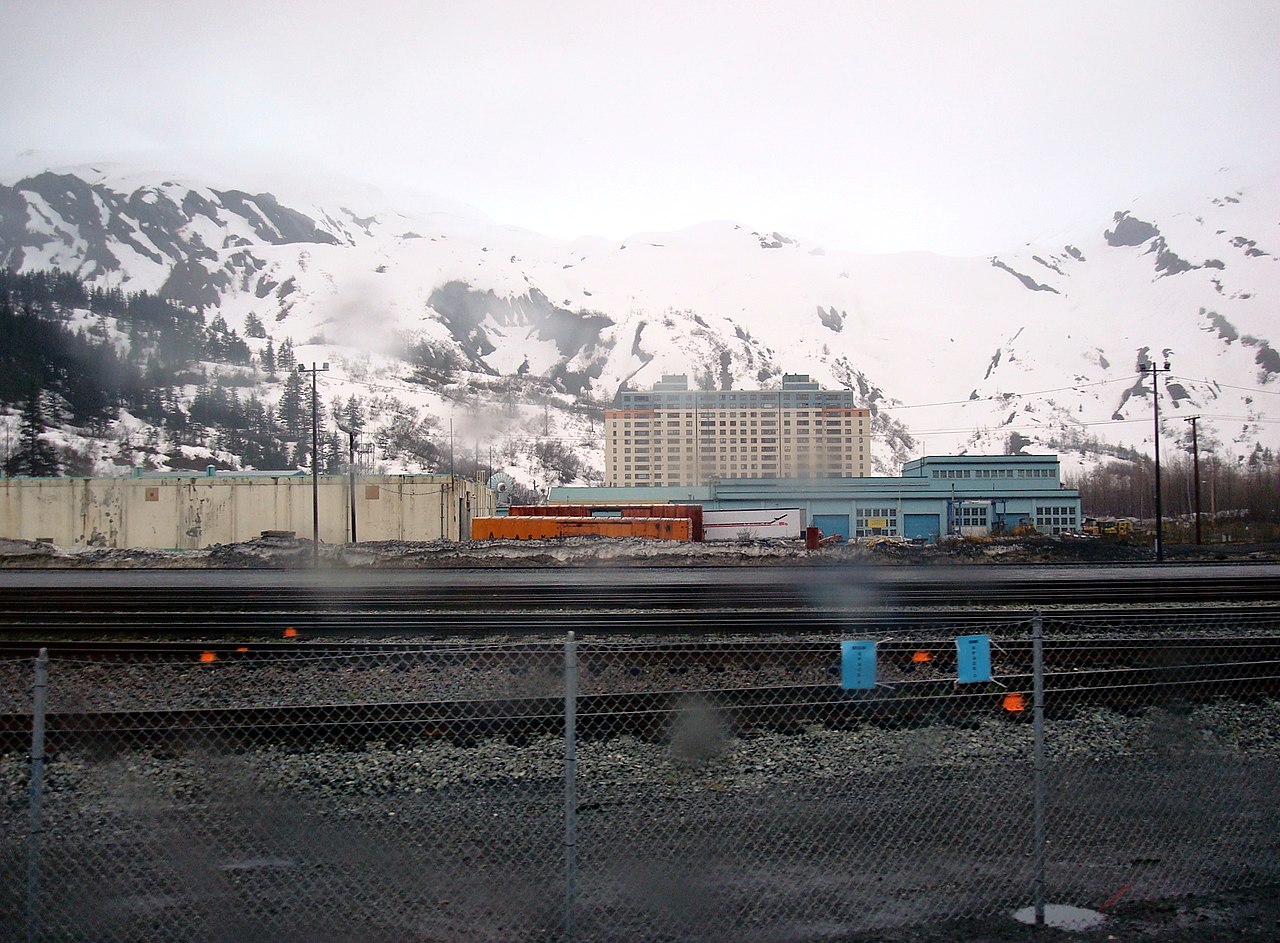 Barbara Ann Spengler, CC BY 2.0, Wikimedia Commons
Barbara Ann Spengler, CC BY 2.0, Wikimedia Commons
Disadvantages: Design
One of the most common complaints from residents today is the outdated design and functionality of the building.
It remains exactly how it was built way back in 1954, complete with metal wardrobes, original countertops, and a military green color painted throughout.
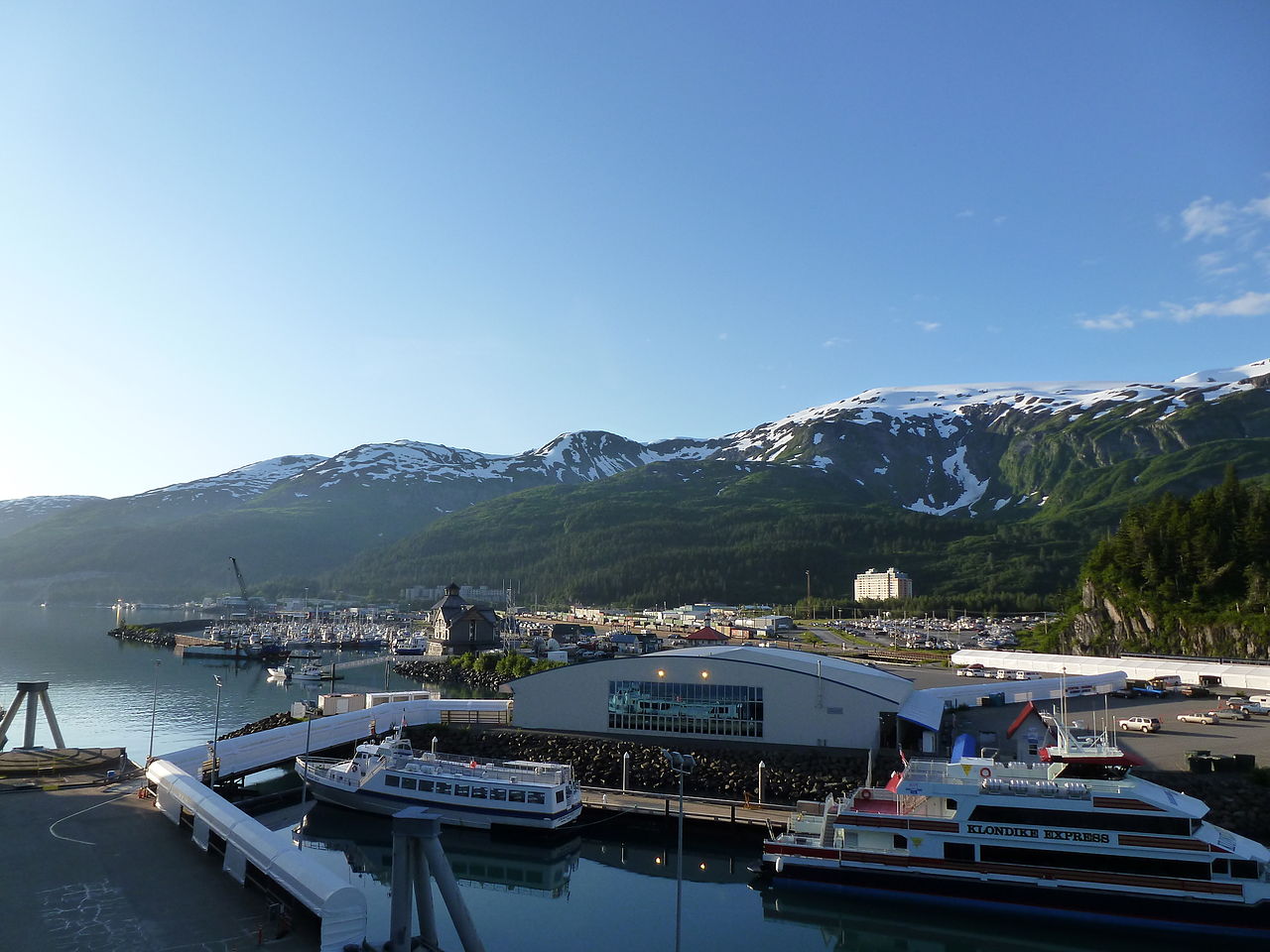 kisforkate, CC BY-SA 2.0, Wikimedia Commons
kisforkate, CC BY-SA 2.0, Wikimedia Commons
Disadvantages: Ill-equipped
Another common complaint from residents is that there are still only two boilers for almost 200 people—and one of them broke.
Transportation
Back when Whittier was primarily for the troops, there were minimal ways to access the town. Depending on the weather, it was either by boat, or by train through the one and only railway tunnel to the town.
Current Transportation
As soon as the troops left town, and civilians were permitted to stay, the rail tunnel was converted to handle cars as well.
The single-tunnel lane comes with restrictions though.
The Tunnel
Residents of Whittier plan their lives by the tunnel’s timetable—cars can only cross once an hour in either direction, and it closes at 10:30pm. If you don’t make it back by then, you’re out of luck.
The Tunnel: Curfew
Residents who don’t make it back by the tunnel curfew end up sleeping in their cars at the tunnel’s entrance.
Many residents own t-shirts that say “POW: Prisoner of Whittier” on them, as a playful complaint.
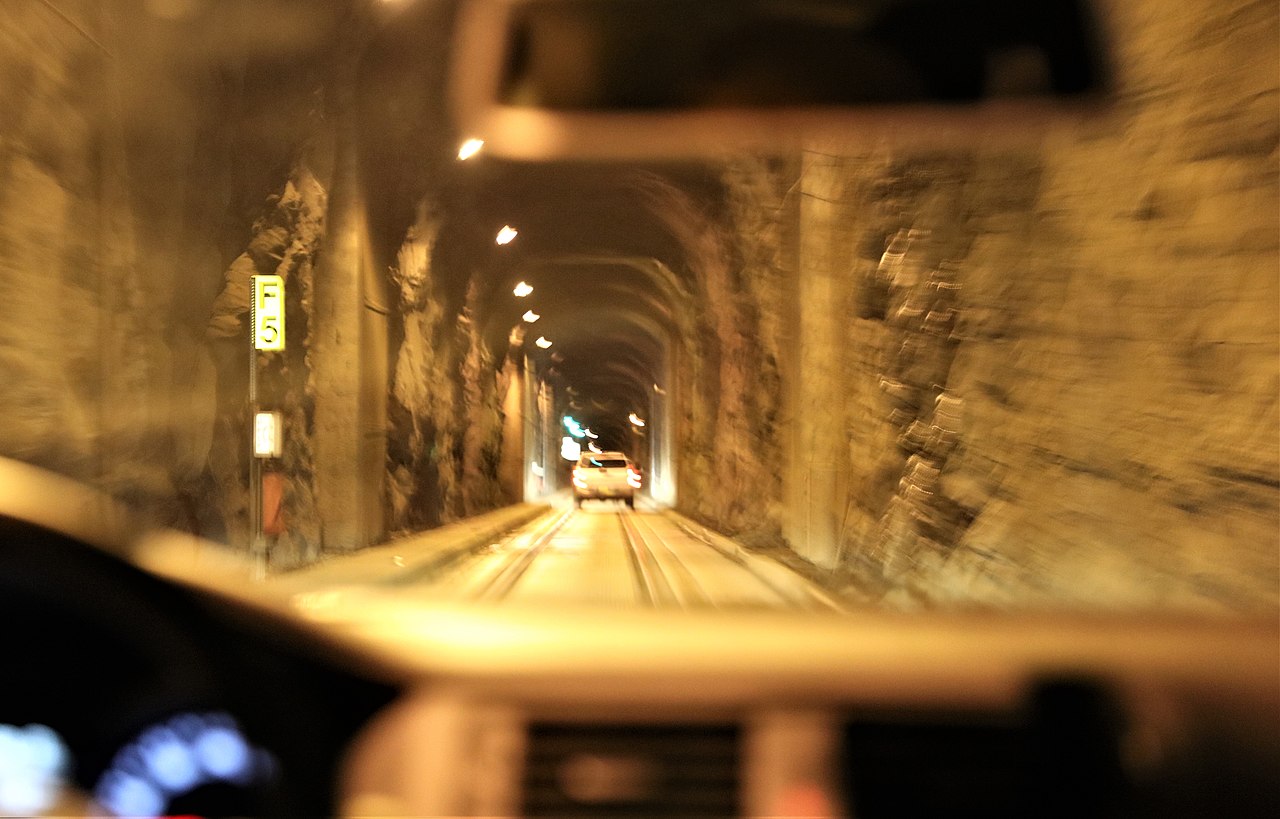 Enrico Blasutto, CC BY-SA 4.0, Wikimedia Commons
Enrico Blasutto, CC BY-SA 4.0, Wikimedia Commons
The Necessity of the Tunnel
Because the basic necessities are provided within the main building, residents don’t have to leave at all if they don’t want to. They don’t even have to step foot outside.
Though many residents have said the tunnel can feel “liberating”.
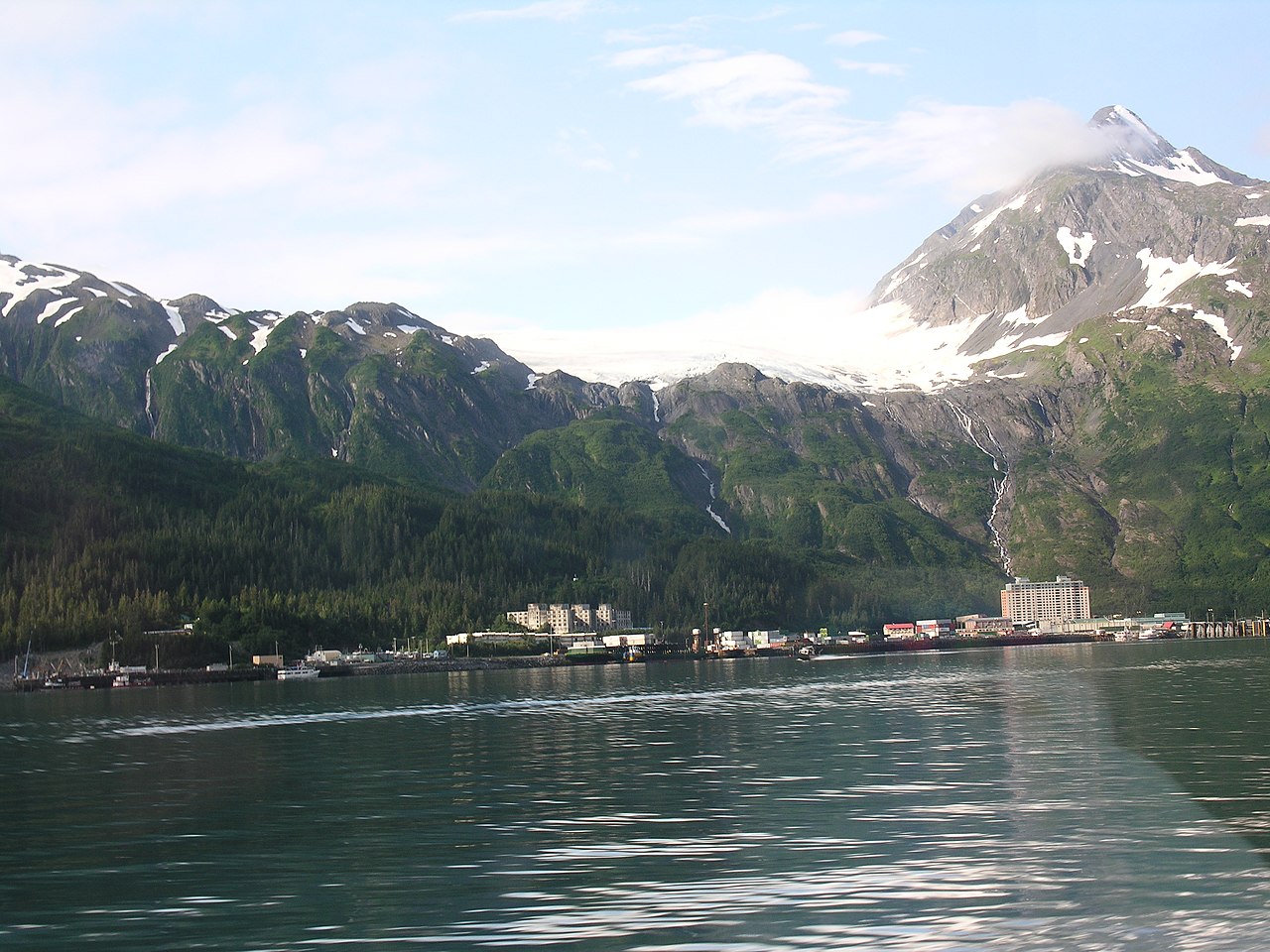 127x0x0x1, CC BY-SA 3.0, Wikimedia Commons
127x0x0x1, CC BY-SA 3.0, Wikimedia Commons
Commuting Inside
Getting around inside the building isn’t as leisurely as you might think. Rush-hour means the elevator stops on every single floor, making a trip to the bottom quite lengthy.
This is particularly challenging for some residents in the mornings when people are going to work and school.
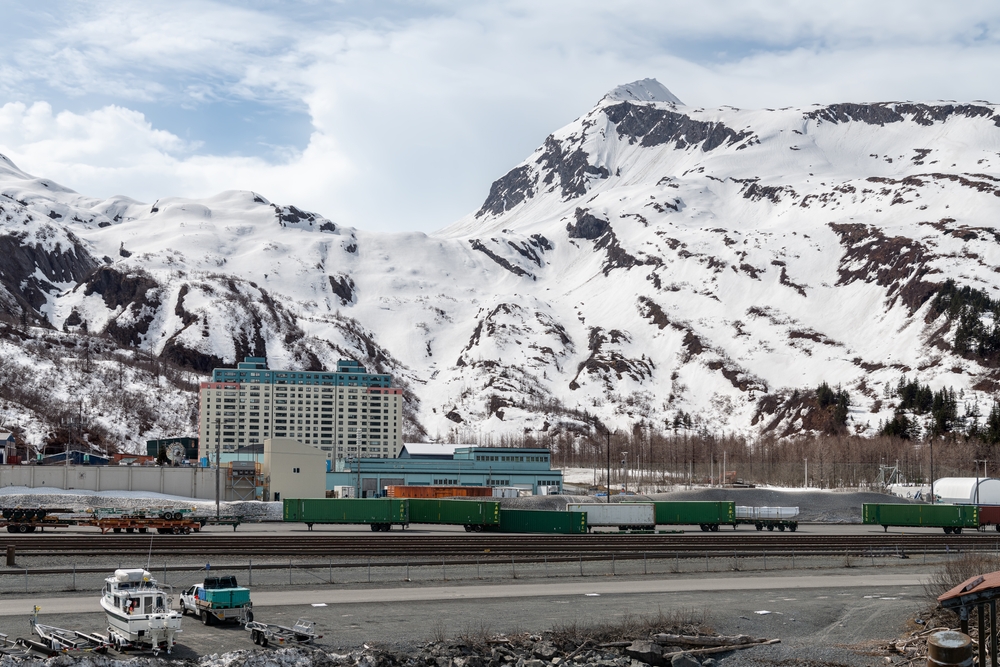 dvlcom - www.dvlcom.co.uk, Shutterstock
dvlcom - www.dvlcom.co.uk, Shutterstock
Employment in Whittier
Since only about 200 people live in Whittier year-round, many of them work in commercial fishing, recreation and tourism, or for the state ferry and railroad.
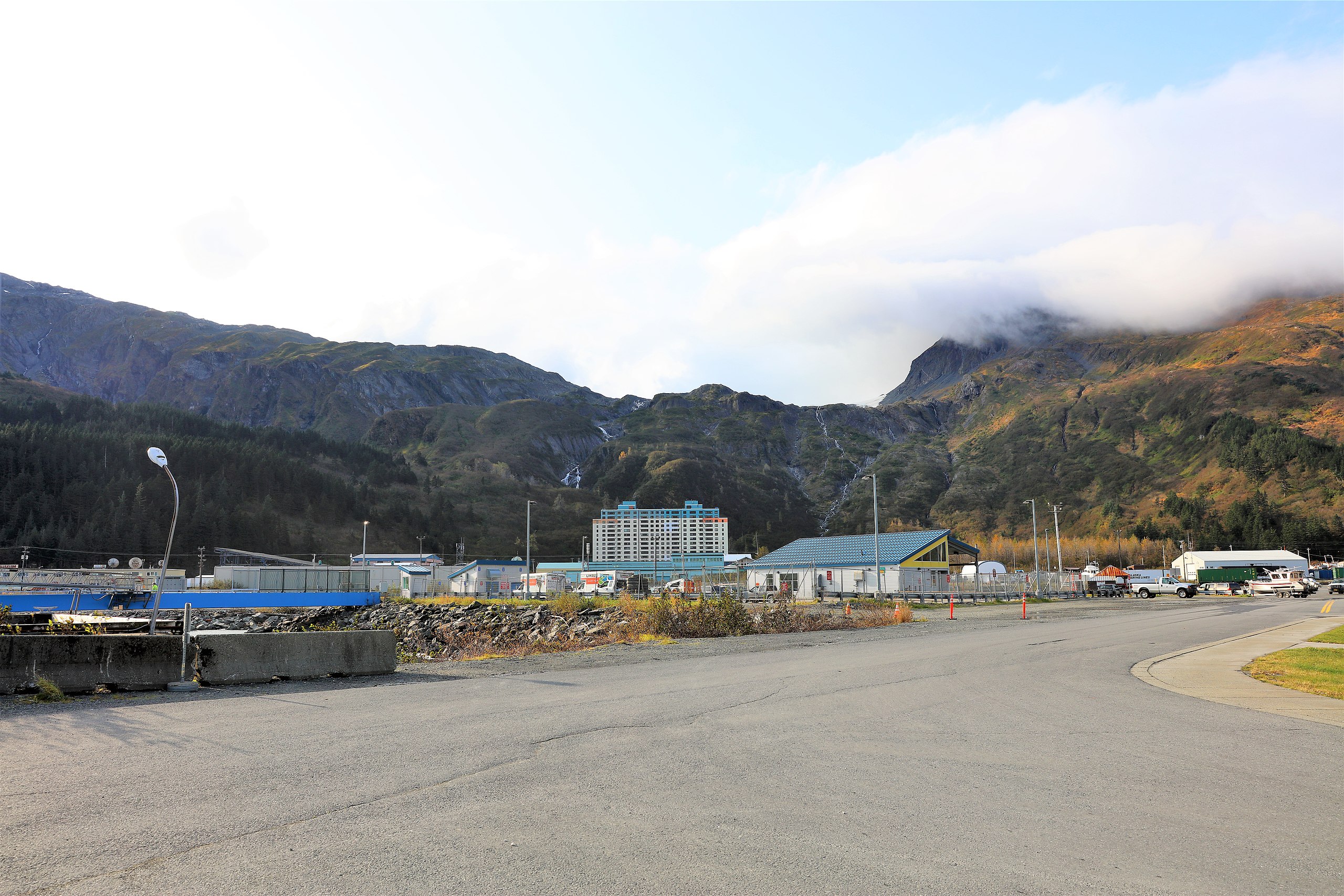 Enrico Blasutto, CC BY-SA 4.0, Wikimedia Commons
Enrico Blasutto, CC BY-SA 4.0, Wikimedia Commons
Living Together
The residents report a harmonious living arrangement, stating that they’re “all family”. There is lots of love, and equal parts dysfunction. Everyone takes care of each other, but they also know each other’s business.
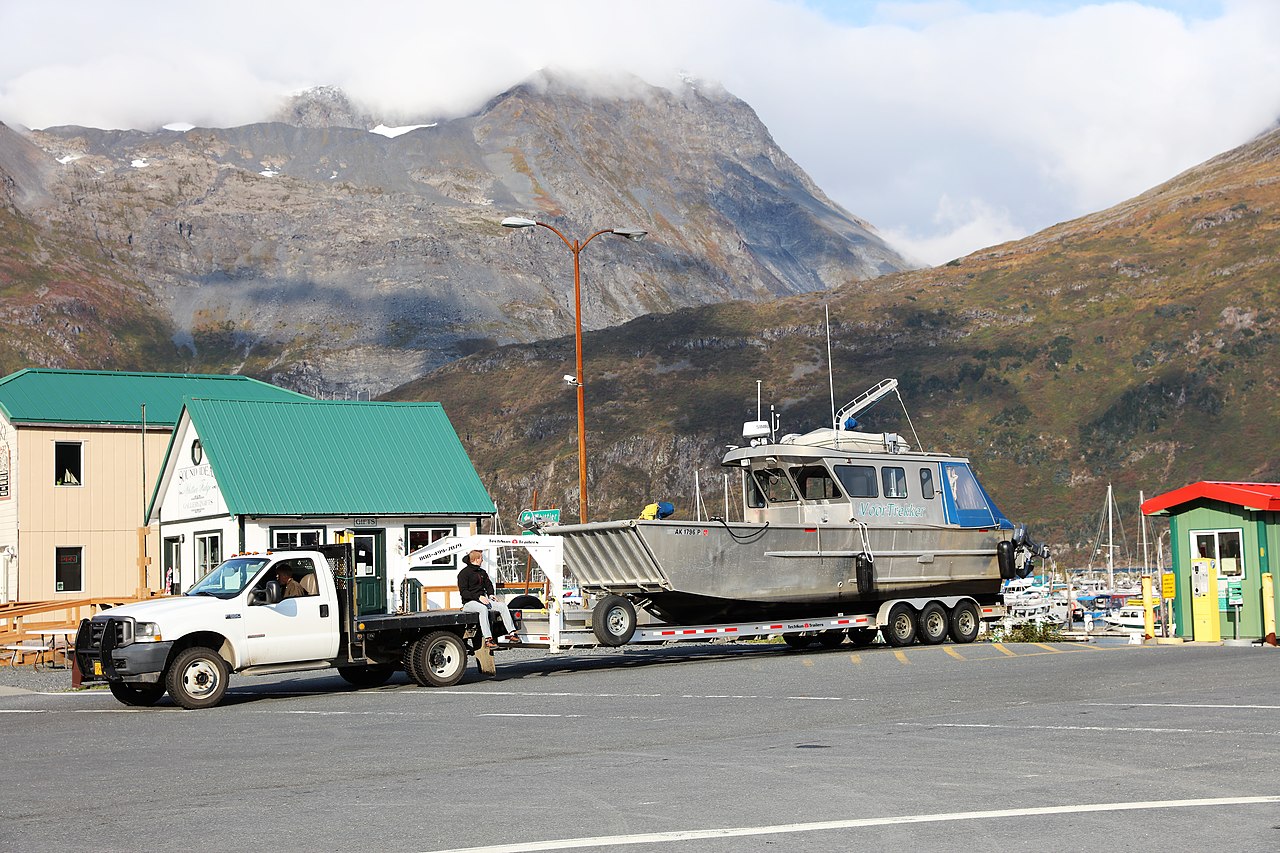 Enrico Blasutto, CC BY-SA 4.0 , Wikimedia Commons
Enrico Blasutto, CC BY-SA 4.0 , Wikimedia Commons
Happiness
The residents also report that they are all generally very happy with where they live.
Outsiders consider Whittier as a horrifying-looking place, rugged and deteriorating. But the residents claim that “not much bothers them”, and they are generally very pleased with where they live.
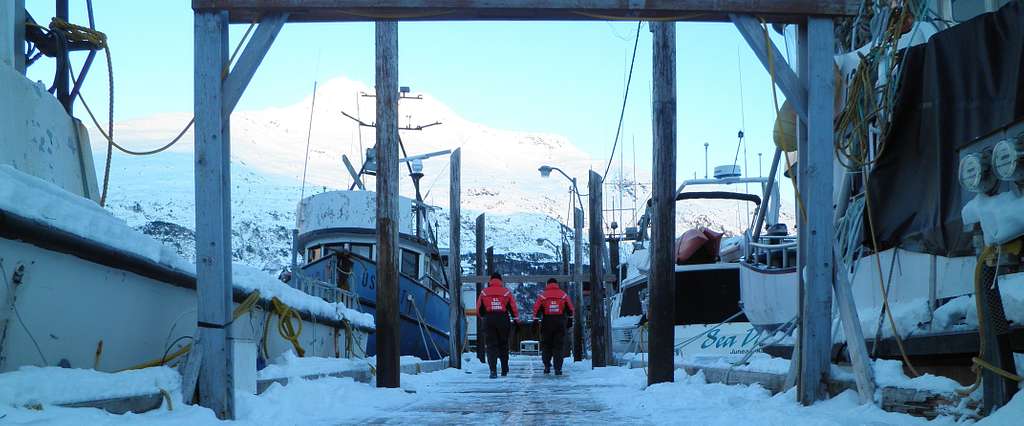 Defense Visual Information Distribution Service, Picryl
Defense Visual Information Distribution Service, Picryl
The Matriarch: Brenda Tolman
Brenda Tolman, 64, moved from sunny California to dreary Whittier back in 1982 with her two small children. She was horrified at first, but came to really love her new home.
Since then, she has gained quite a reputation in Whittier.
Pet Reindeer
Tolman has two pet reindeers that she keeps in a pen outside, across from the building. Her unusual pets make her quite popular, as she goes outside the building twice a day to care for them—much more than most others.
The Town Rebel
Tolman is also known as the building’s matriarch because she has been there so long, and she also “keeps everyone in line”, and is not afraid to “tell it like it is.”
Tolman refers to herself as a “bit of a rebel”.
Boundaries
Tolman actually moved out of the building when she felt a lack of privacy. At the main building, residents are free to walk over to your apartment in their pjs and show up at your door at any hour.
She moved to the other building, which she pays more for, but appreciates separated quarters a lot more.
A Teacher’s Perspective
One of the teachers at the Whittier Public School says she struggles to separate work from home.
"Here the student-teacher relationship is very different," she says, "because you live among your students… I take the garbage out, I see my students. I do my laundry, I see my students".
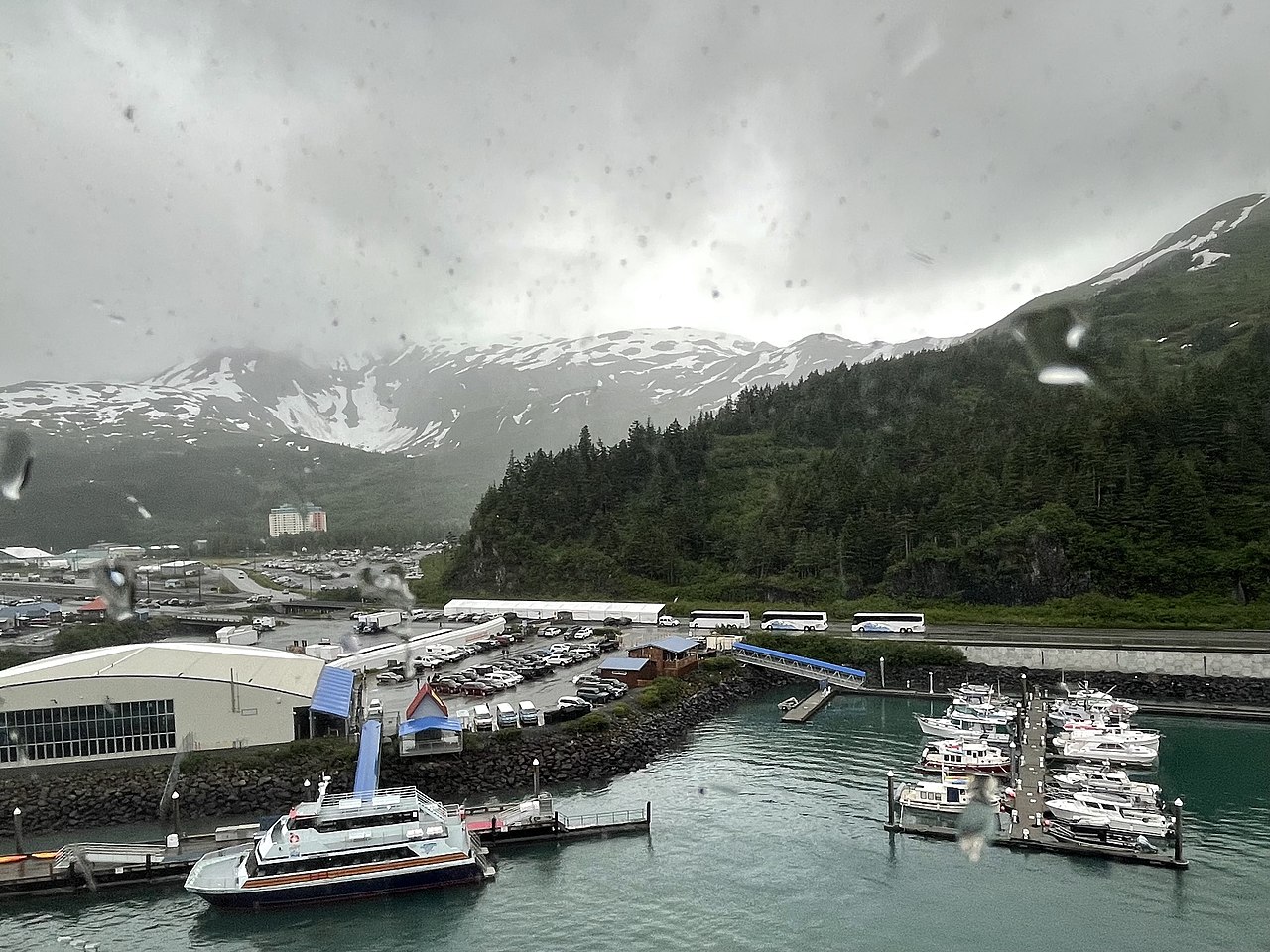 Richard N Horne, CC BY-SA 4.0, Wikimedia Commons
Richard N Horne, CC BY-SA 4.0, Wikimedia Commons
The Convenience Store
The small convenience store in the building is called Kozy Korner, and it is operated by Frankie and Ron Graham, two residents.
The Graham’s stock the store by personally traveling to Anchorage and purchasing supplies to sell in the store.
 Will Buckner, CC BY 2.0, Wikimedia Commons
Will Buckner, CC BY 2.0, Wikimedia Commons
Indoor Garden
The building also has an indoor hydroponic garden that was started by one of the teachers. The students help care for the garden as they learn from it.
The school acquired the equipment after authorities busted a guy in the building for using it to grow special herbs in his apartment.
Indoor Playground
The residents struggle with how much freedom to allow the children of the building, especially in the winter months when they rarely step foot outside.
A small indoor playground was built as a way for kids to exhaust their energy, but some days it isn’t enough.
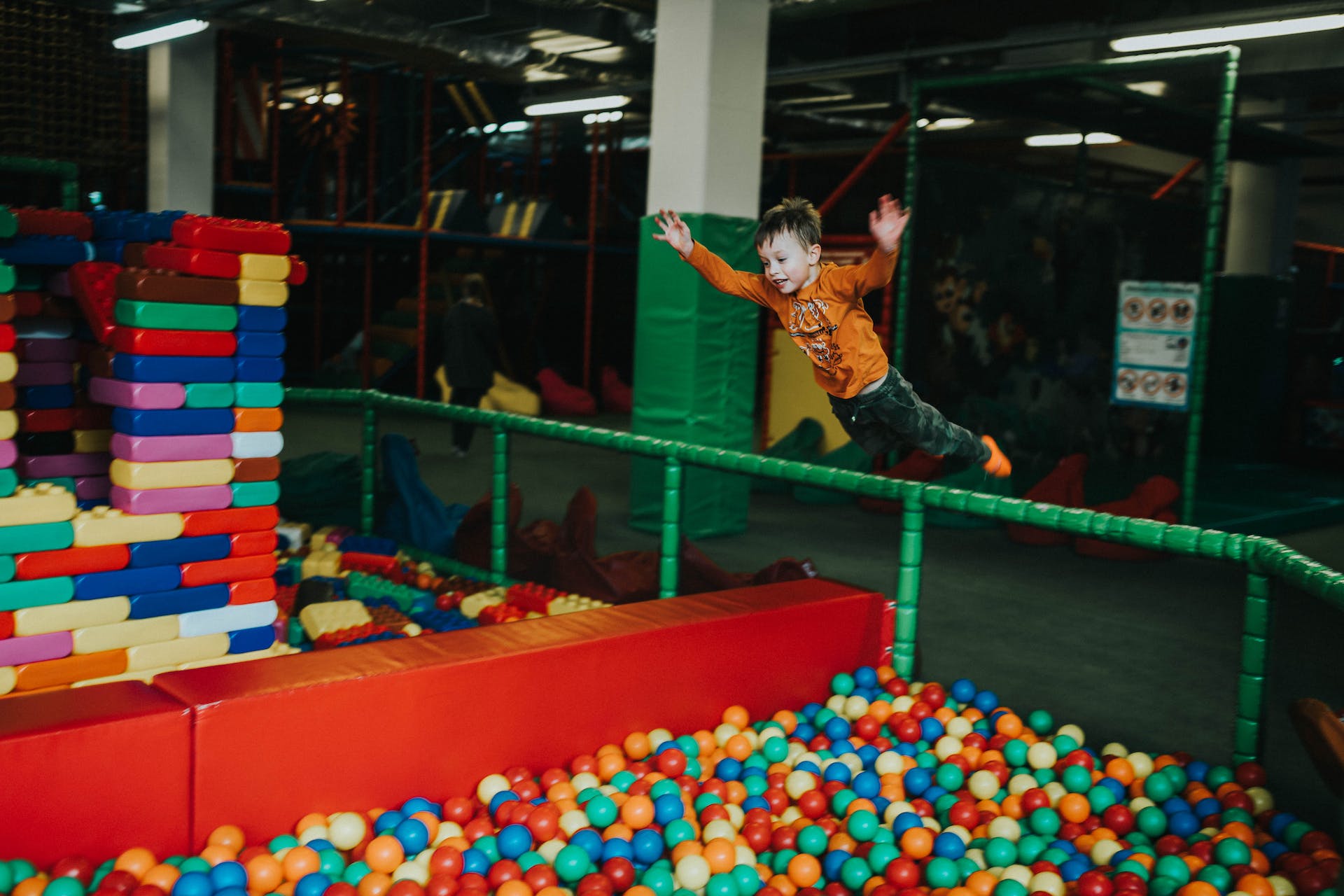 Helena Jankovičová Kováčová, Pexels
Helena Jankovičová Kováčová, Pexels
Retirement Community
Many elders in the building would prefer it to be a retirement community, and that the children should be schooled and housed elsewhere.
However, the rest of the residents believe that if the children leave, so would the energy in the building—which will then lead to an increase in depression.
The Basement
The basement houses a maze of storage cages and a room full of freezers that residents can rent for $15 a month. The freezers are stocked with steaks and other meat, ice cream loaves of bread, frozen dinners, and more.
This is how people survive the winter months when grocery shopping is extremely limited.
The Basement: Services
The basement is also a meeting ground for various self-made groups within the building. Some women get together for social activities, and some religious groups gather down there for church ceremonies.
Even though it isn’t pretty, it’s functional and people still enjoy it.
Trouble in the Towers
Of course, there are still incidents of trouble reported in the Begich Towers.
In 2007, a 27-year-old man living in the towers was charged with taking the life of his girlfriend’s two-year-old daughter.
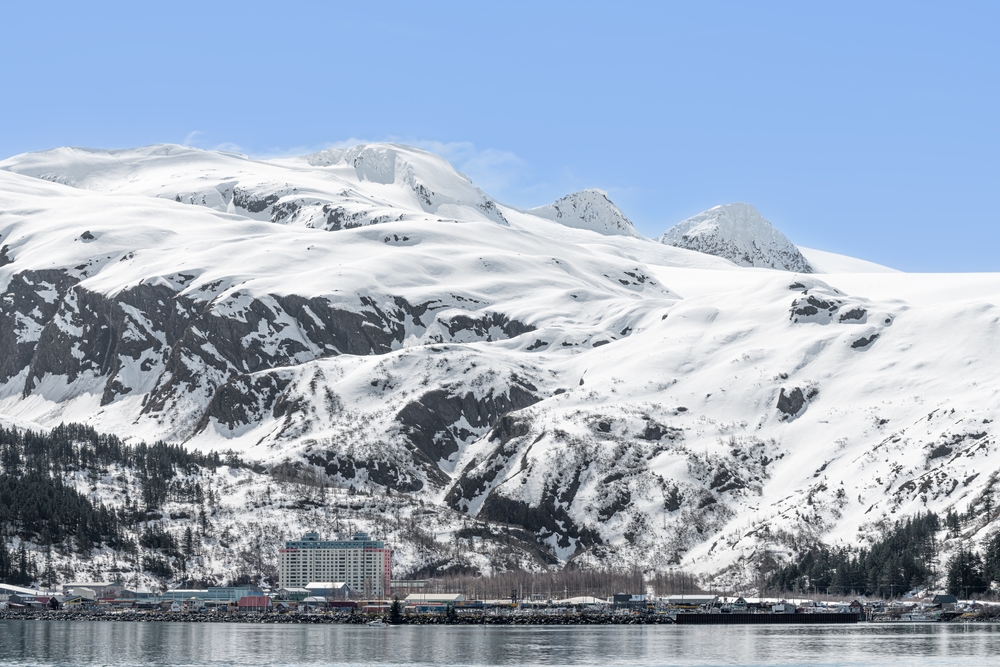 dvlcom - www.dvlcom.co.uk, Shutterstock
dvlcom - www.dvlcom.co.uk, Shutterstock
The Pandemic
Residents of the Begich Towers experienced an increasing quiet level of anxiety as soon as the pandemic hit, as they knew it would only be a matter of time before it would hit them too.
Sure enough, by August 2020, the virus moved in.
The Pandemic: Quarantine
Toward the end of the summer, six people, all living in the same unit, tested positive and were immediately quarantined.
Though the fact that everyone shared the same ventilation system made quarantine a challenge.
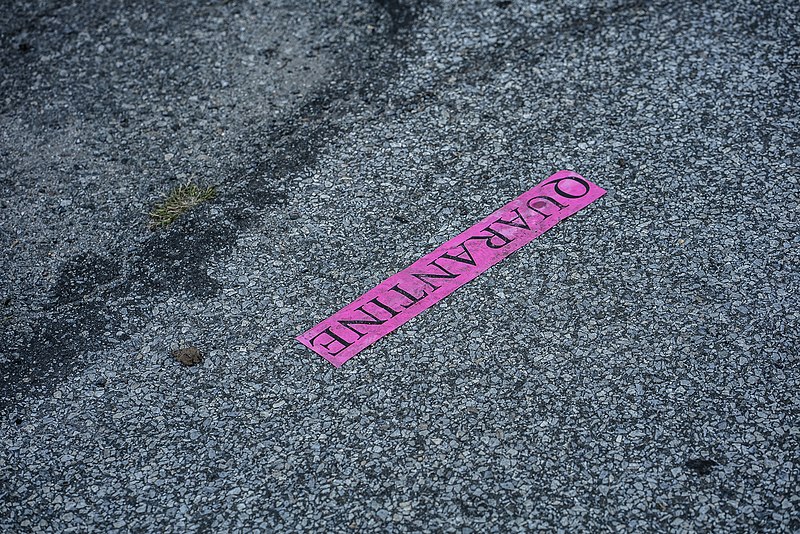 Billie Grace Ward, CC BY 2.0, Wikimedia Commons
Billie Grace Ward, CC BY 2.0, Wikimedia Commons
Pandemic: Cases
The building set strict restrictions for residents and banned all visitors immediately. Luckily, they were able to confine the virus, and it had apparently not spread beyond the six individuals.
The pandemic was a stark reminder of how maintaining good health in an isolated environment is important.
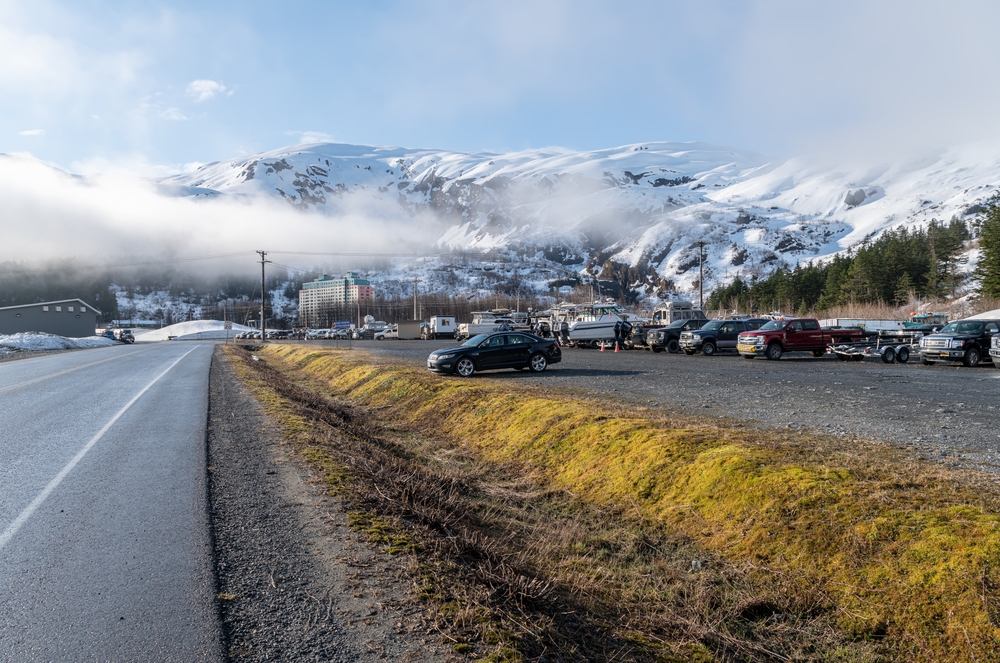 dvlcom - www.dvlcom.co.uk, Shutterstock
dvlcom - www.dvlcom.co.uk, Shutterstock
Final Thoughts
The isolation and remoteness of the town can be challenging for some, so it requires serious consideration before moving into the building.
Although the “town under one roof” has its fair share of trouble, it remains a fairly safe place to live and residents report a generally “very happy home.”
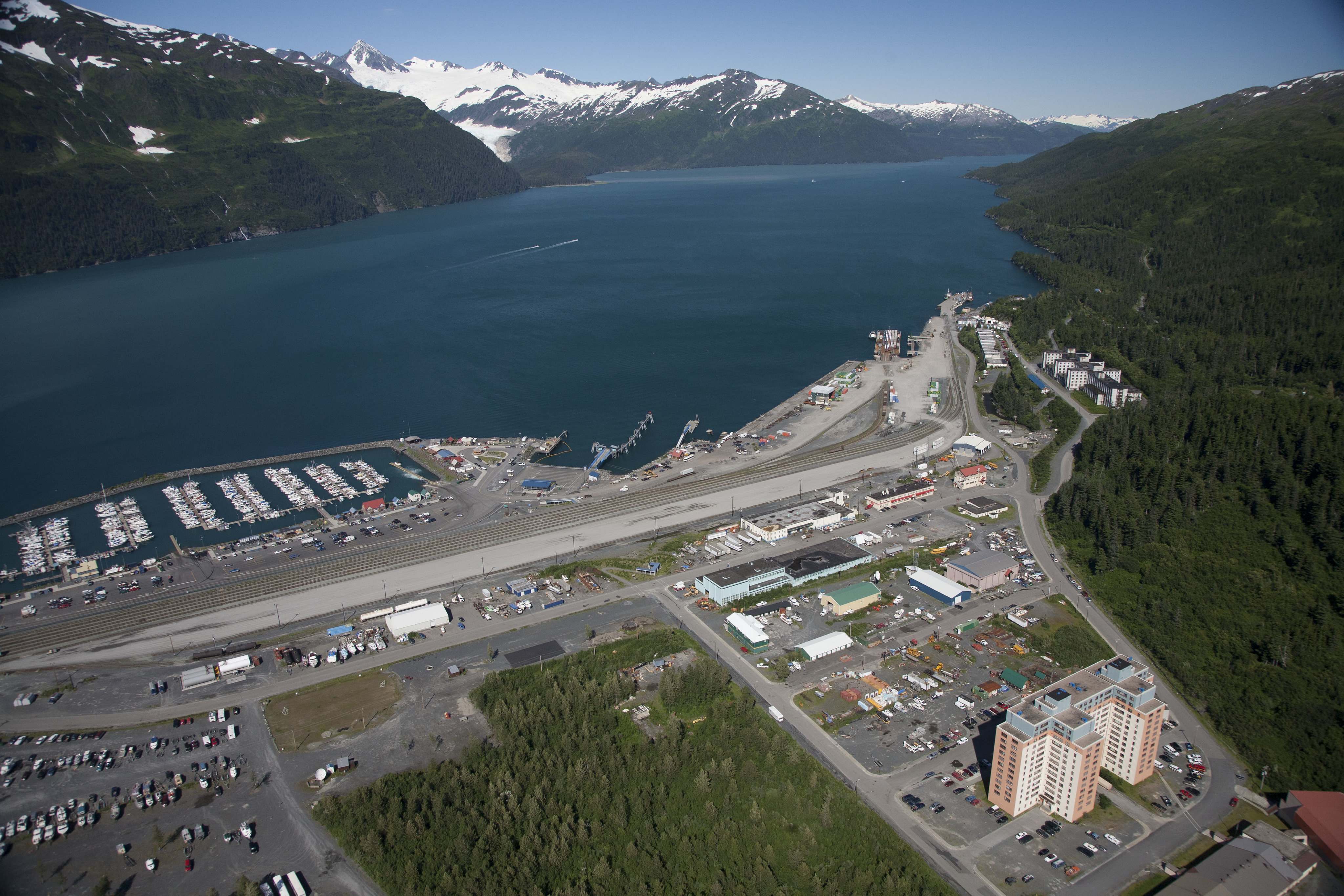 Forest Service Alaska Region, Flickr
Forest Service Alaska Region, Flickr

